If there’s a shortage, people are required to make ‘fertiliser’ for the government
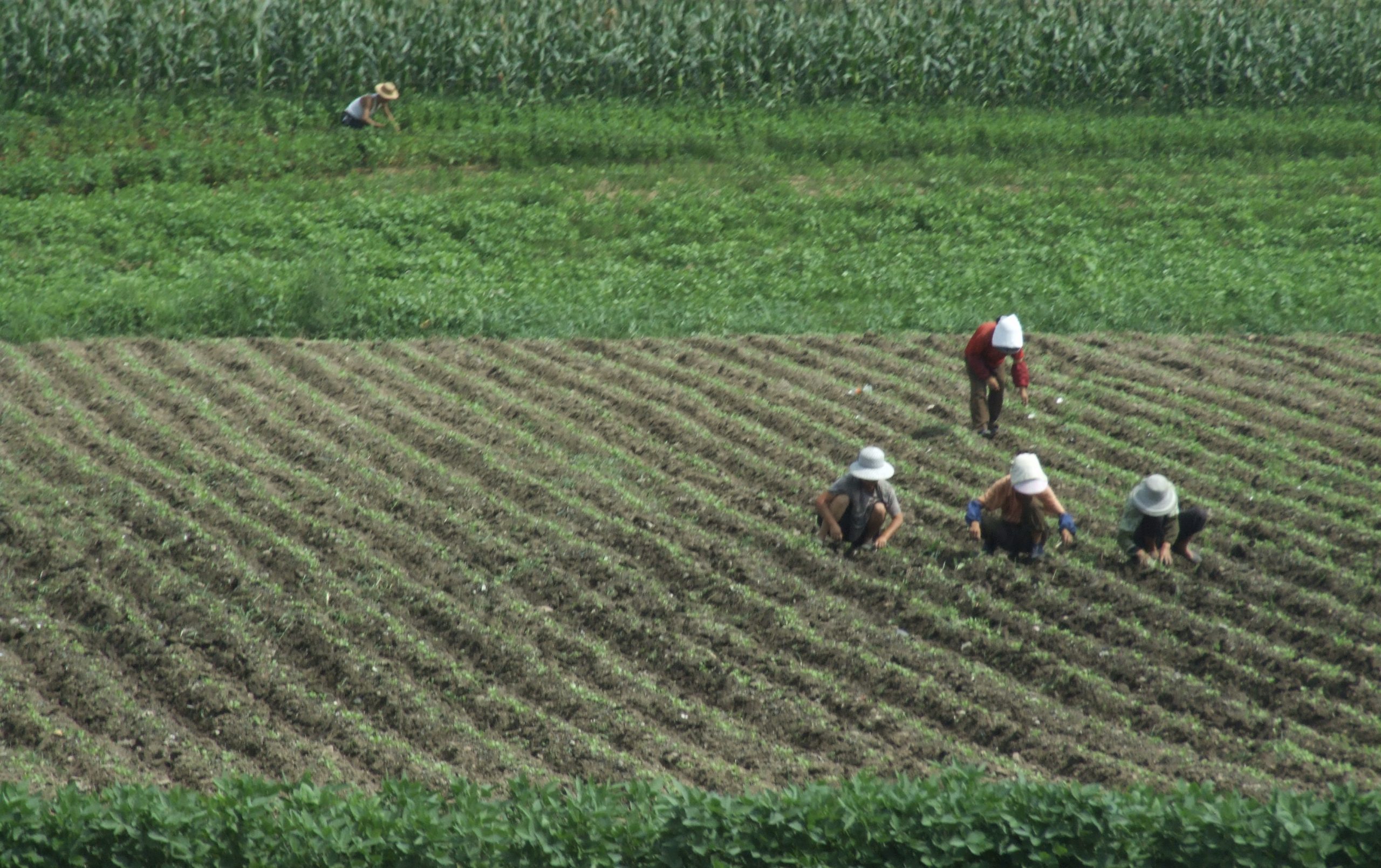
Owing to how isolated and resource-poor the nation is, shortages are common in North Korea. Blackouts, food poverty and lack of fuel for use in vehicles are a regular feature of daily life here. There’s one other thing that the country occasionally runs out of: fertiliser. But the government has a novel solution for that.
In 2007, North Korea stopped receiving the shipment of 300,000 tonnes of chemical fertiliser from South Korea that it had come to rely on over the years and, by 2013, whatever reserves North Korea still had of South Korean chemical fertiliser ran out, so the government ordered the people to start handing their faeces over. The North Korean regime demanded hundreds of kilograms of human fertiliser from every one of its citizens in time for the spring sowing season.
There are regular elections – but there’s only ever one option on the ballot
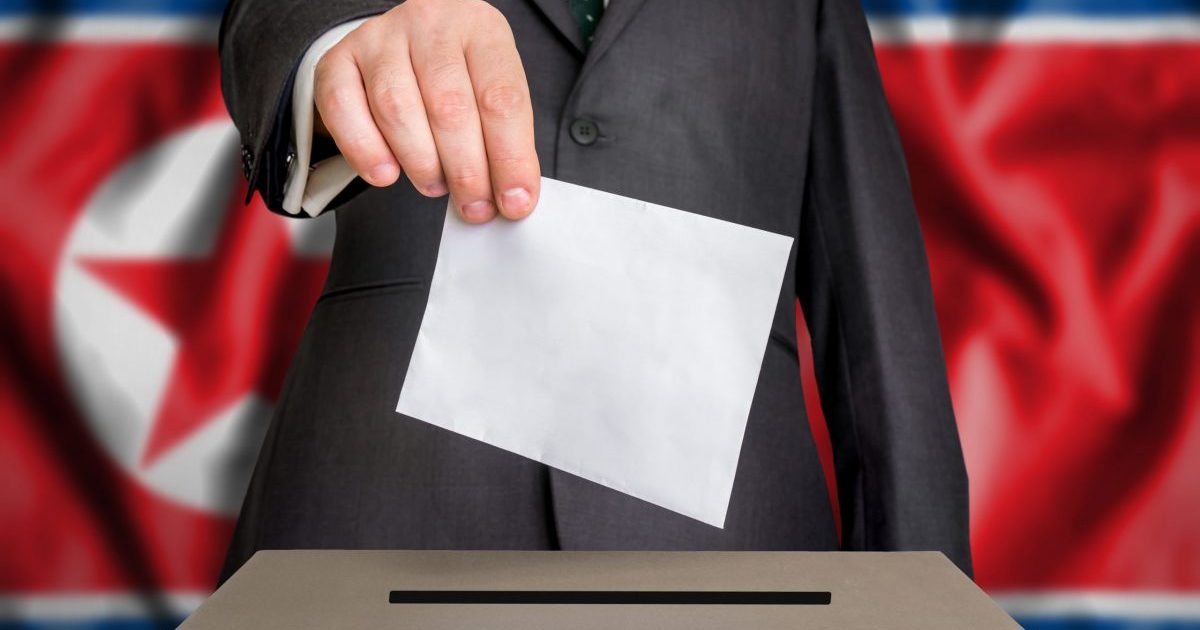
Kim Jong-un may have a reputation as an authoritarian, but he doesn’t go about things entirely undemocratically. As in the UK, North Koreans have a chance to vote when elections are held every five years. The only problem is that the ballot has just one name on it: Supreme Leader Kim Jong-un. As participating in the democratic process is mandatory in North Korea, at the last election, almost 100% of citizens turned out to vote. Unsurprisingly, 100% of the vote went to Kim, thus keeping him and his party in power for another five years.
Bizarre as the entire charade may seem, North Koreans are required to vote regularly so the government can take a population census – and keep tabs on those who might not use their right to vote wisely.
If you commit a crime, your entire family goes to jail
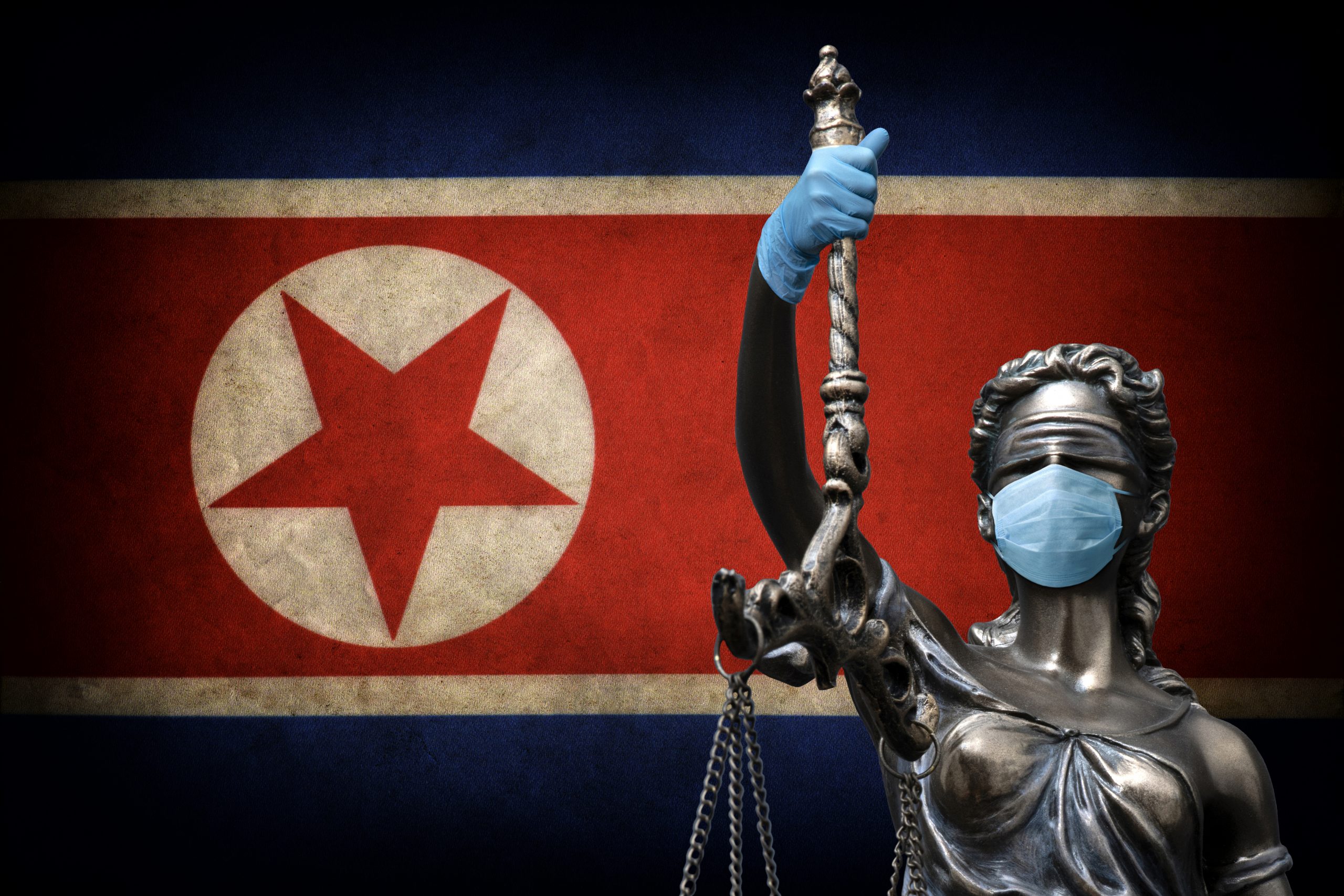
When it comes to punishing citizens for misbehaviour, North Korea is about as hardline as countries get. Take the case of Jang Song Thaek, Kim Jong-un’s uncle, whom the Supreme Leader had executed in 2013. As part of a government purge by Kim, Uncle Jang was reportedly stripped and fed to the dogs – literally. For ordinary citizens, things aren’t much easier: if someone commits a crime, for example, they might not be the only ones who go to prison.
In North Korea, an apparent ‘three generations rule’ means that, if one person is jailed, their entire family might be too. Even if they’re completely innocent of any crime, parents, grandparents and children of the accused can be sentenced right along with the guilty.
People are arrested for not wearing state-approved haircuts
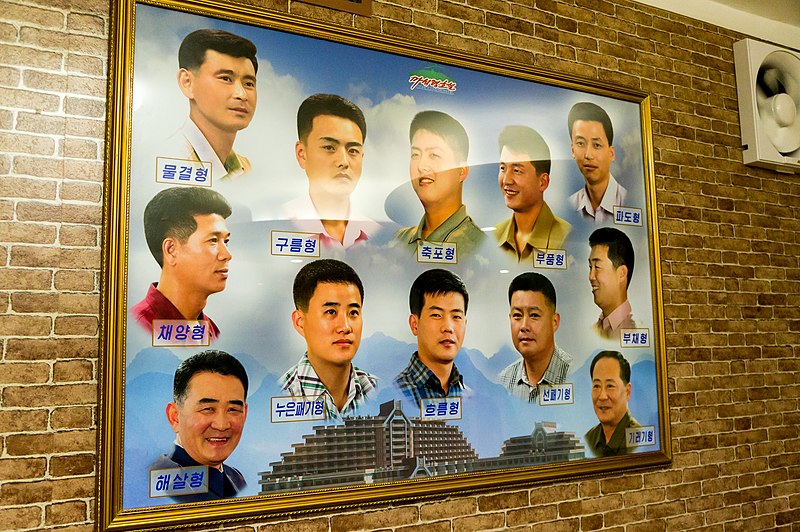
You might think, based on pictures, that fashion isn’t high on the list of priorities in North Korea. You’d be wrong. Not only is fashion a huge deal in the DPRK, how people present themselves is strictly controlled. For one thing, stepping out with a non-government-approved haircut could land a person in serious trouble. For women and men, there are 15 state-sanctioned haircuts. Failing to wear one of these styles is considered “non-socialist behaviour” that government enforcers are specifically hired to keep an eye out for.
Deviating from accepted hairstyles could lead to a fine or even land a person in jail. Somewhat selfishly, Kim Jong-un’s own ferocious ‘do isn’t one of the 15 haircuts that men in North Korea are allowed to have, meaning the Supreme Leader has effectively outlawed his own hair for all but himself.
The North Korean diet includes tree bark and grass
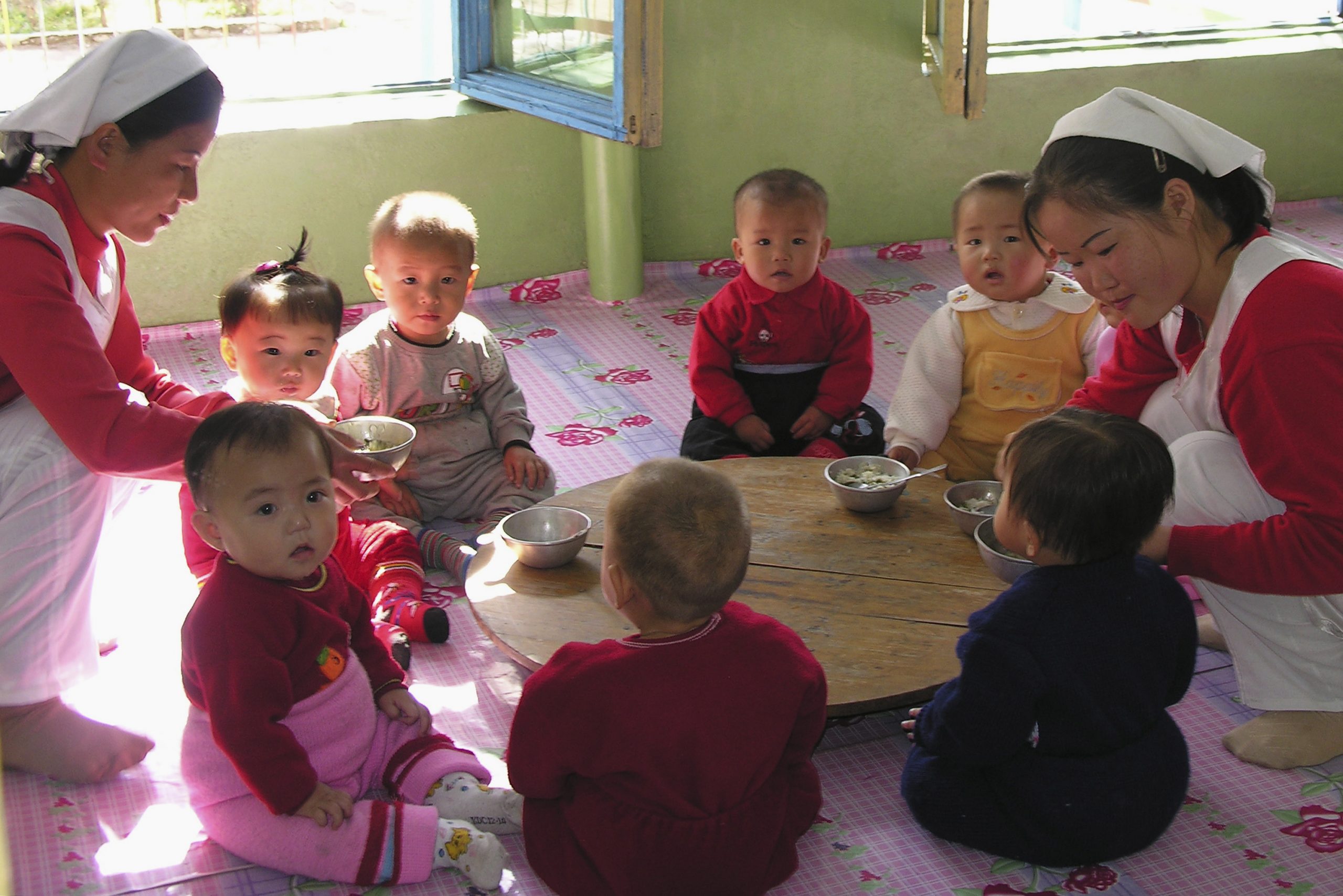
Food shortages in North Korea are so severe, the people occasionally have to resort to desperate measures simply in order to survive. One popular way of making it through the year is to introduce ‘wild foods’ to the diet. Wild foods are just as they sound: if getting hold of store-bought goods isn’t an option, there are foods that North Koreans can simply pick up naturally.
These include sea weed and edible mushrooms, but in more extreme cases people have also resorted to eating tree bark and grass. The problem, other than the lack of nutrition that ‘wild foods’ like grass and bark have to offer, is North Koreans have been known to eat wild foods that are actually poisonous to humans. Such things as wild grass and poisonous mushrooms and plants have been known to make already-starving North Koreans seriously ill.
Cars are almost nonexistent
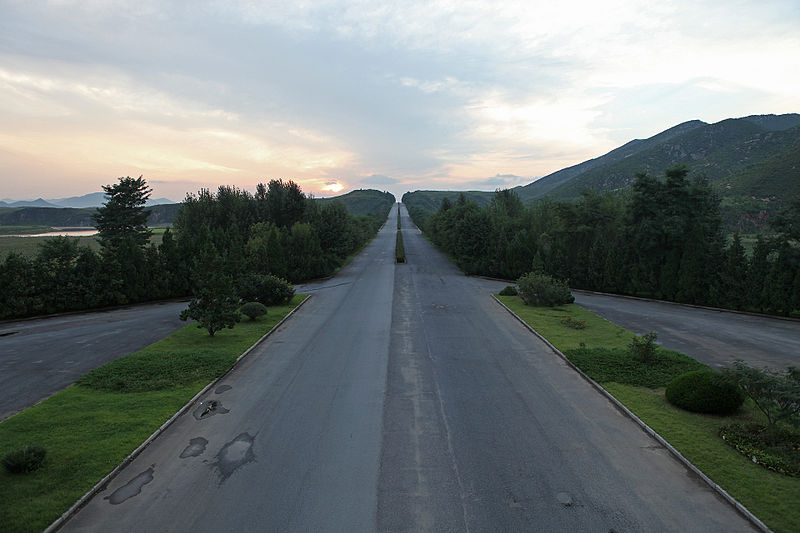
Kim might have nukes now, but if you thought North Korea had fully entered the 21st century yet then you’re sadly mistaken. In the DPRK, while cars have become a more common sight of late, it’s still rare to see one in action. So rare, in fact, that no one has even bothered to make the traffic lights work yet. While there are traffic lights in the country, hardly any of them are operational, and female traffic wardens (who must be young and beautiful and retire at 26) do most of the work instead. Highways are also eerie sights in North Korea, as transport going to and from connecting cities is virtually nonexistent.
Instead, you’ll see people walking the miles of road and attempting to flag down any vehicles they might be able to hitch a ride with.
The nation’s favourite pastime is visiting Kim Jong-il’s body
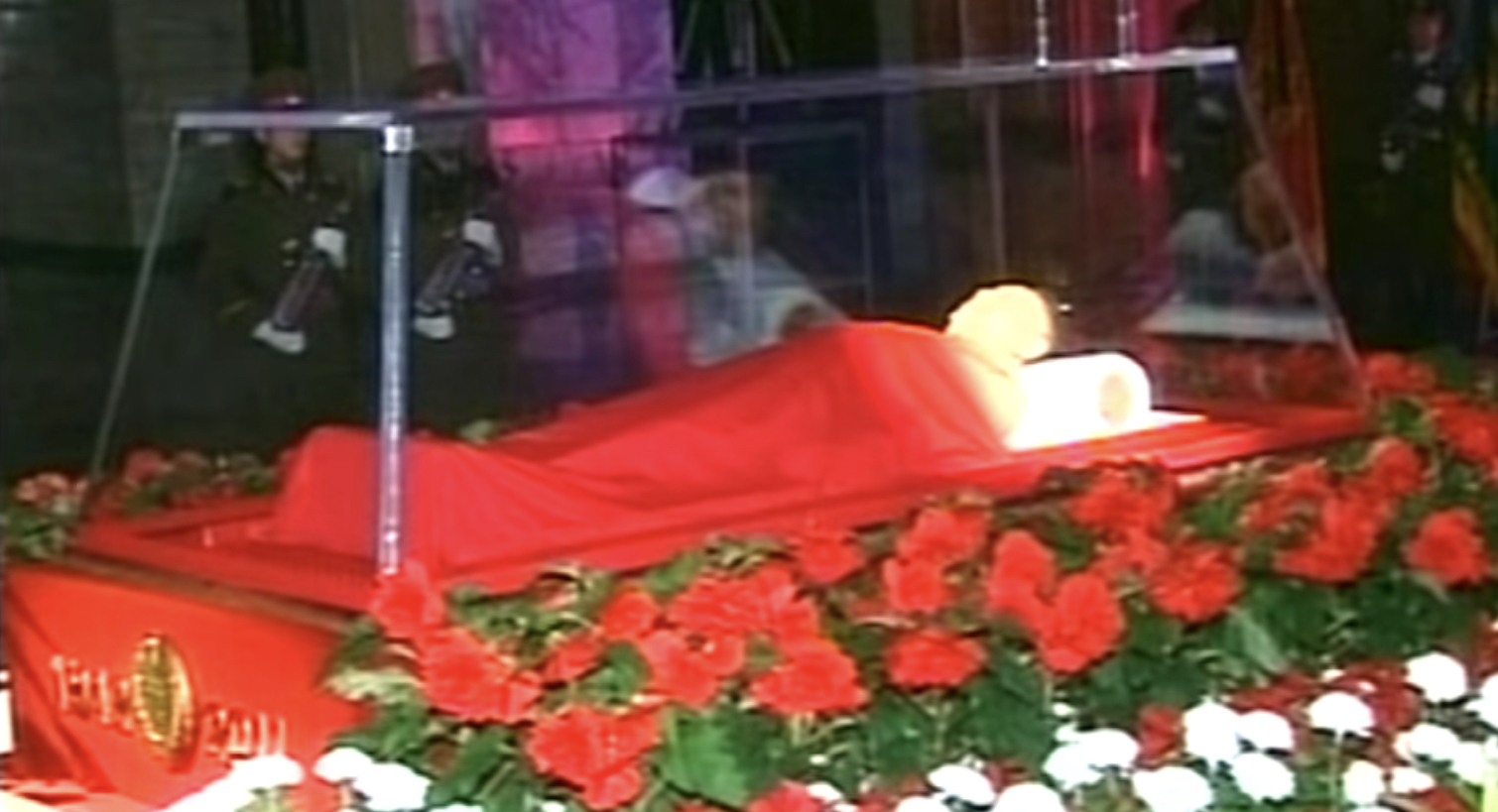
Kim Jong-il may have been gone since 2011, but in North Korea at least, he’s far from forgotten. Upon his death, it was decided that the body of the ‘eternal leader’ would be preserved for viewing. And so, Kim’s body was embalmed and put on display in the Kumsusan Memorial Palace in Pyongyang. Since 2012, Kim Jong-il’s body has laid alongside the embalmed body of his father – and the pair have become quite a tourist attraction. As of now, the Kumsusan mausoleum is the most popular place for North Koreans to visit in the entire country.
Should you wish to pay a visit, the bodies of the Kims are now on show for foreign visitors as well. Thursdays and Sundays are when Kumsusan is officially open to tourists.
Some non-musical professions require people to learn the accordion as a rule
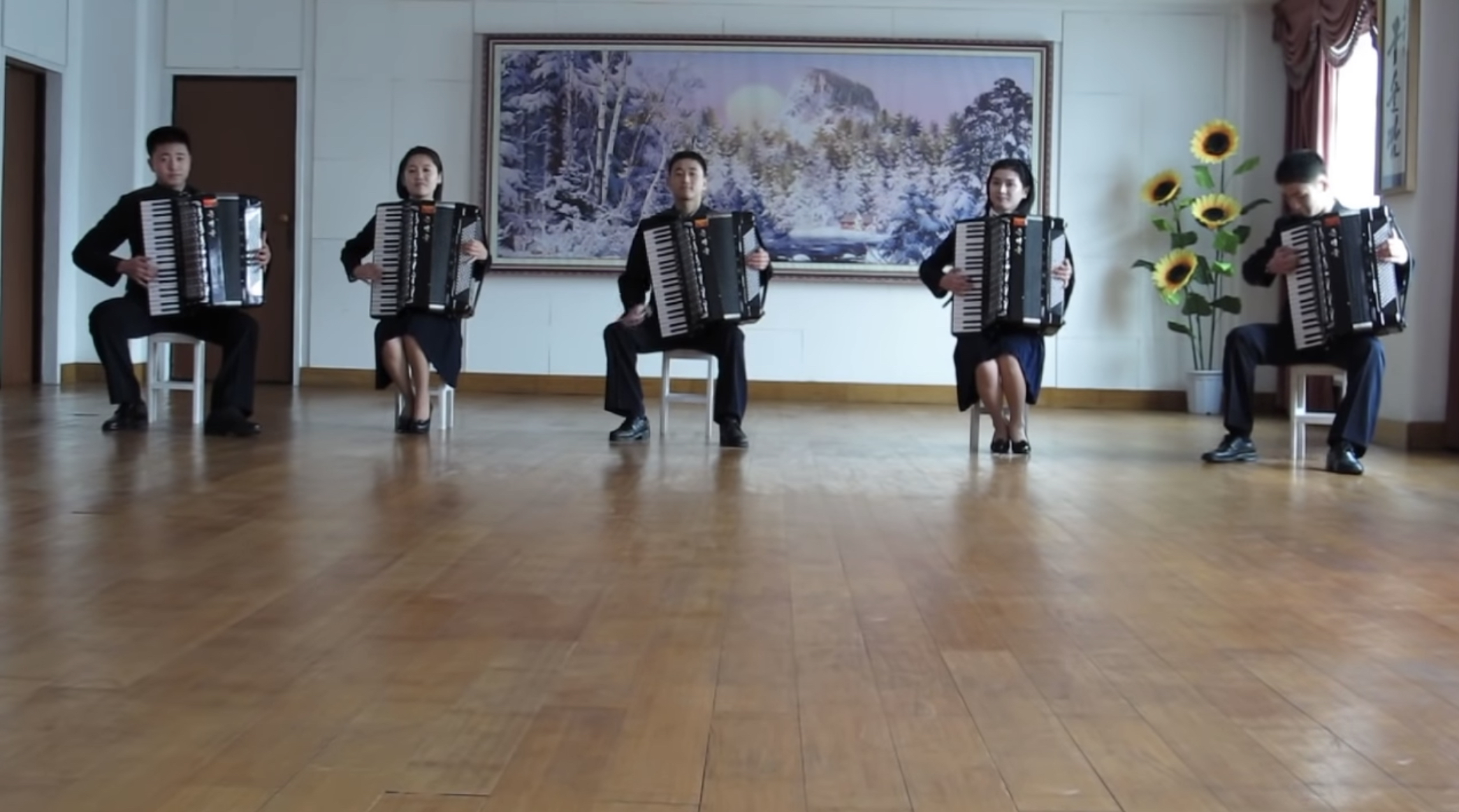
North Korea isn’t all doom and gloom; like most anywhere, playing and listening to music is still a popular pastime. You might not be quite as familiar with what constitutes ‘popular’ music in North Korea, however. Over in the DPRK, the accordion is one of the more favoured instruments, so much so that some workers in wholly non-musical professions have been required to learn it.
Until only recently, all teachers in North Korea had to know how to play the ‘people’s instrument’ as a rule. This was so they could play songs to students, like the catchily-titled We Have Nothing to Envy in the World. Outside of teaching, the accordion is still highly popular today.
Kim Jong-un’s dead grandfather is still technically head of state
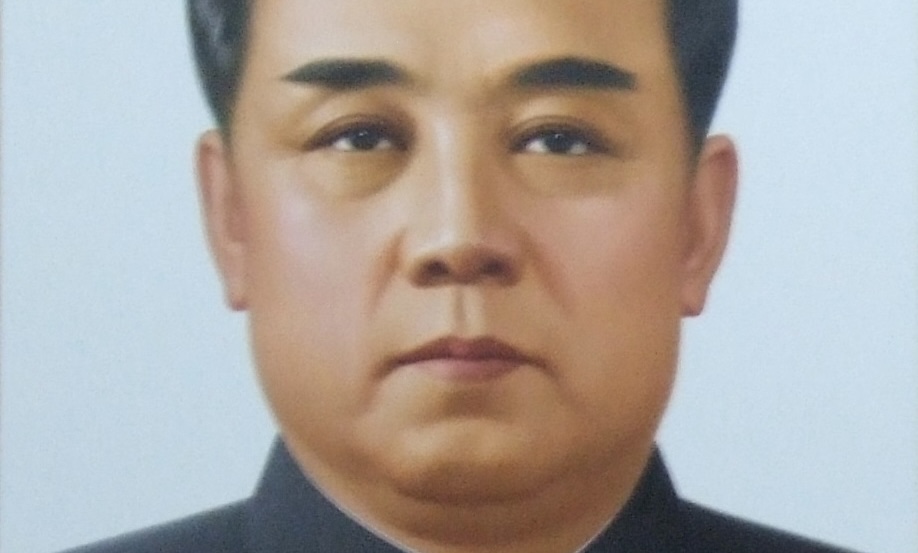
Kim Jong-un has been Supreme Leader of North Korea since his father, Kim Jong-il, died in 2011. Barring any sudden surprise coup d’etats, Kim will, like his father be the all-powerful ruler in North Korea until he himself dies or hands power over to one of his children. Still, all-powerful though he may be, there’s one man who Kim technically still has to answer to. With religion frowned upon in the country, Kim Jong-un’s grandfather, Kim Il-sung, is treated in North Korea as a kind of deity in his own right.
Such is the level of reverence for Kim Il-sung, he was declared Eternal President in 1998 – four years after his death. The North Korean constitution now states that no one else may ever again hold the title of president, making Kim Il-sung the head of state forever.
The year is 111, not 2022
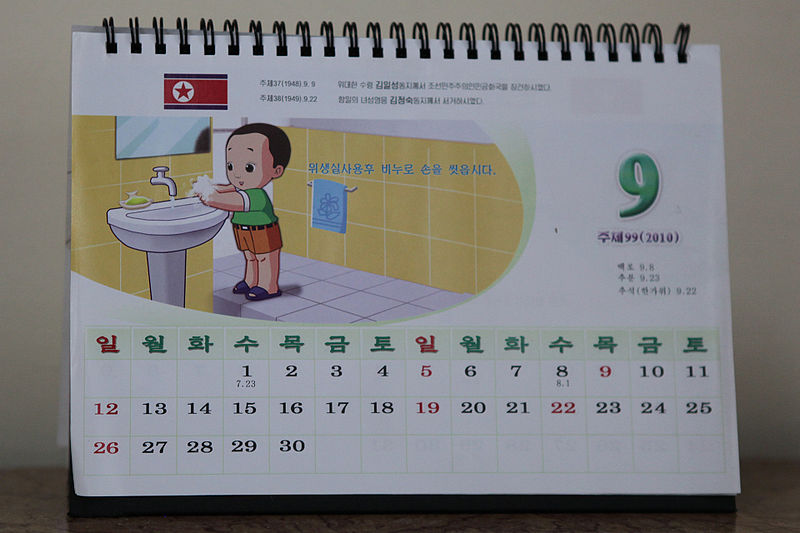
It probably goes without saying that the cultural differences between the people of North Korea and the rest of the world are vast. Even in some of the most basic ways, North Koreans have an experience that we would struggle to comprehend here in the West.
For starters, North Korea has an entirely different calendar to us, and right now the year is most definitely not 2018. In 1997, just before Kim Il-sung was made Eternal President, the revised North Korean constitution also changed the year. The new calendar that was adopted, the Juche calendar, began recorded time with the birth of Kim Il-sung in 1912. This makes 1912 ‘Juche year 1’ in North Korea, with the current year being 107.
The country is rife with STDs
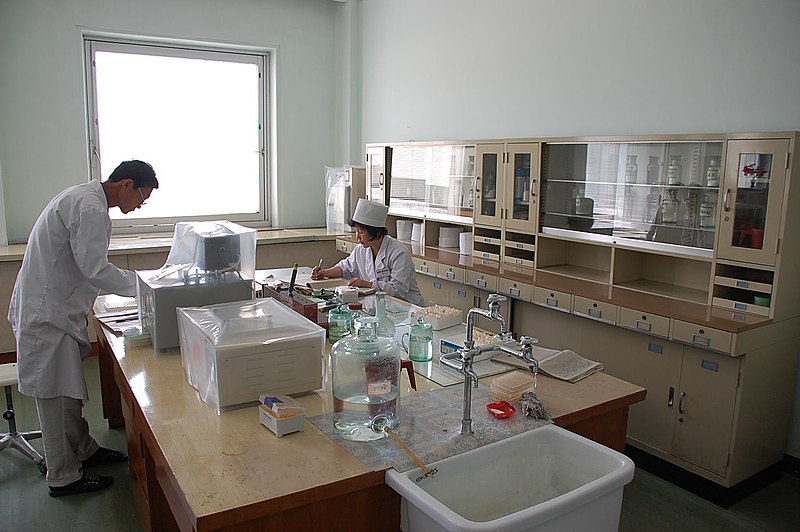
Due to severe sociocultural restrictions and long periods of military service, casual sex is rampant in North Korea. The limited availability of protections also combine to worsen the spread of STDs in the country. Because of the poverty and hunger rate in North Korea, some women will offer sex for the price of rice. Prostitution is not legally allowed, but poor women use places like train stations to offer certain services in exchange for food or just enough money to buy one unit of rice.
However, there was a ring of prostitutes called the kippumjo who provided services to high-ranking government officials for many years. They were supposedly disbanded in 2011 but we’re not sure so sure, especially when you consider the fact that Kim Jong-un likes to surround himself with a bevy of women at all times. Sadly, many women who escape the regime and cross the border into China often end up turning to prostitution as a way to make money.
You have to go and visit a statue of Kim Il-sung on your wedding day
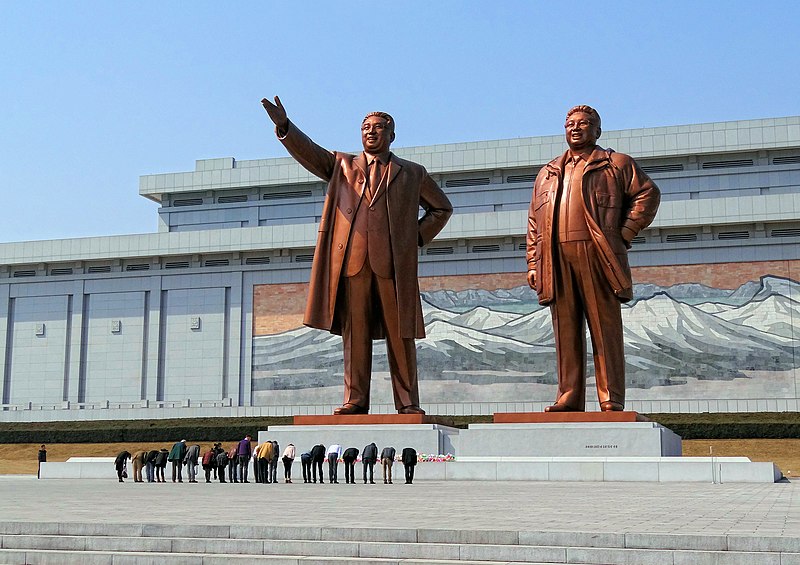
Korean newlyweds must visit the statue of Kim Il-sung on their wedding day to honour it with flowers and then take pictures. Also you can forget about having a honeymoon. Apparently cold noodles are the most symbolic dish at a North Korean wedding and will always be served after the ceremony. It is quite usual for someone on a wedding day to ask: “when can I eat your cold noodles?” which just sounds like a horrible innuendo to us. As if there weren’t already enough rules, you cannot hold a wedding whenever you fancy in North Korea. They are usually only held in the spring and autumn.
Weddings are also prohibited when Kim has an upcoming important event. People also cannot marry on 15th April or 16th February because these are the birthdays of former leaders Kim Il-Sung and Kim Jong-Il. On those days you can sit and think about how great your glorious leaders are instead!
Pets are considered to be an unnecessary luxury in North Korea
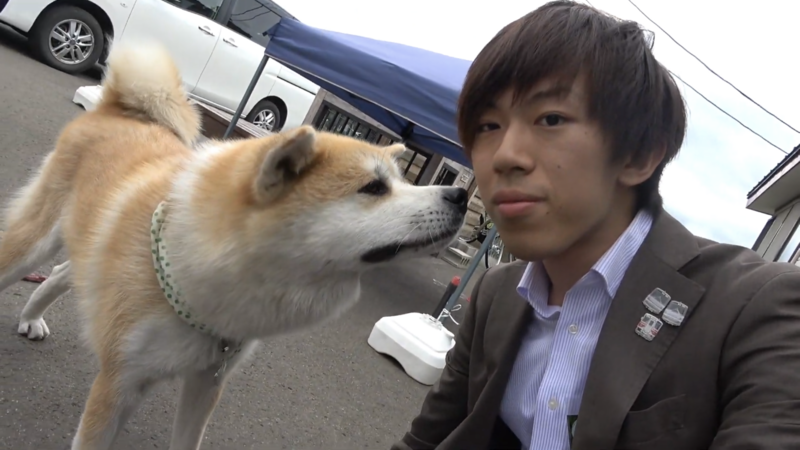
Pet lovers are frowned upon in the notoriously strict Communist state. There is no specific law prohibiting it, but keeping pets in North Korea is considered an unnecessary luxury and a burden that can be done without during a time of great food scarcity (in other words, most of the time). Also, did you know that dog meat is a delicacy in traditional Korean cuisine? And that’s not the only critter that North Koreans like to eat…
During a traditional Korean wedding ceremony, a live hen and rooster are wrapped in red and blue fabrics and set on a ceremonial tables. During the service, guests place flowers and dates into the hen’s beak, whilst the rooster’s will be stuffed with red chilli. We can’t imagine the birds enjoy this very much. Obviously, Kim-Jong Un is allowed to keep whatever he likes, and reportedly has a pet goat.
You’re only allowed to date someone if you plan on marrying them
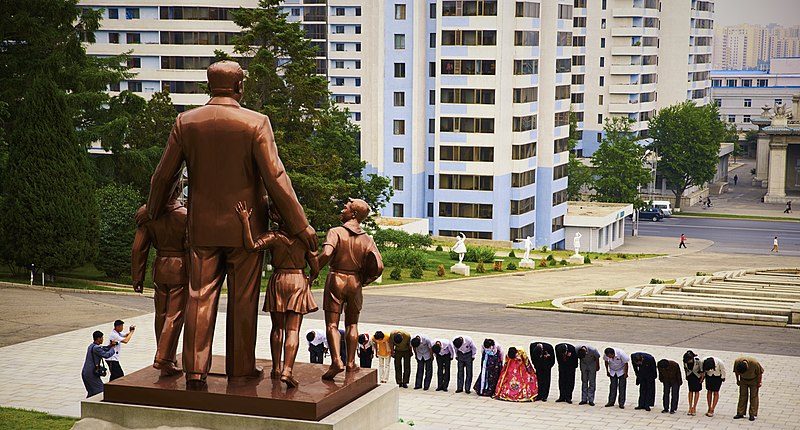
We’re guessing Tinder and Grindr don’t exist in the Democratic People’s Republic of Korea. The purpose of dating in North Korea is not just about getting to know someone… it is for the sole purpose of marriage. Homosexual relationships are totally forbidden. Many things that we take for granted in the West, North Koreans are not allowed to do. This includes things like public displays of affection (including hugging and kissing, even for marries couples,) getting tattoos and having piercings.
These things are all a no-go in North Korea. Sounds like a real barrel of laughs! North Korean men expect their brides to be chaste and to have been in no previous marriages. They must also be without child. In the DPRK, if a woman gets divorced then it is always her fault and, as such, she has very little chance of ever finding another husband. Domestic violence is not frowned upon and many men who abuse their wives will be supported by the government. Again, Kim Jong-un gets a free pass to do what he likes with women. Female defectors from the country have described how school girls are pulled out of high school and taught how to become sex slaves and pleasure the notorious leader.
The First Lady often disappears for years at a time

Just like most things in the country, Kim’s wife, Ri Sol-Ju, is about as secretive as anything else. She is very rarely seen out in public, and sometimes disappears for years at a time. Very little is known about her and it is suspected that even her name is a pseudonym. It is not really known when and if they actually got married. However, in recent months she has been spotted in public much more frequently thanks to improving relations between North Korea and South Korea.
Apparently the couple got married soon after Kim’s father died from a stroke – the Uns wanted to ensure that their bloodline was extended and the pair now have three children together. Ri has been upgraded to the title of ‘respected first lady’ after previously being known as ‘madam’ and ‘comrade’.
North Korean soldiers must remain celibate during their first ten years of service
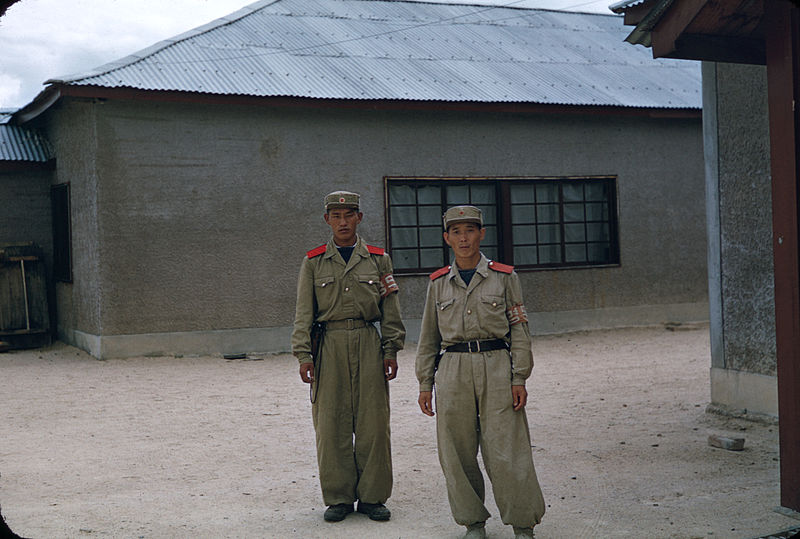
This is one law that severely impacts the lives of North Korean soldiers serving in the military. North Korean military law states that officers must be celibate during their first 10 years of service. This explains why male soldiers will regularly exchange food for sex with desperate women. There is also a high level of “situational homosexuality” among them, despite the fact that homosexuality is illegal. This is interesting when you consider that North Korea has the biggest military per capita in the world.
Experts have estimated that there are around 1.2 million active soldiers in the state, meaning that North Korea has 47.8 per 1000 citizens. This is the highest rate of any country in the world, and ten times higher than the United States. Like any good dictatorship, North Korea also has a thriving Hitler Youth-style child army. The Young Red Guards are the organised paramilitary youth branch of the army and were created in 1970. The Young Red Guards are male, aged between 15 and 17, and have to undergo between 10 to 15 days of military training. They have to provide their own food and uniforms.
Women use opium-soaked tampons to protect against STDs

Opium is legal and cheap in North Korea, and it comes in handy as a shield against the rampant spreading of STDs. Women will soak a cotton ball in a light mixture of water and opium which they will insert and carry like a tampon until the next day. One defector has claimed that the government is profiting directly from the opium trade and many local peasants are hooked. Yoon Yong Sol explained that during the famine, “there were some complaints that […] we should be growing grain, not poppies. “[B]ut the instruction from the central government was that if we grow poppies we can sell the product for 10 times as much to buy grain. … The only way to earn hard currency is by drugs.”
And that’s not the only drug you can get your hands on in North Korea. Forget the Netherlands, North Korea is fast gaining a reputation as the cannabis capital of the world. For Chinese and Russian tourists, North Korea is the number one destination to bag yourself some cheap weed.
Construction workers are given crystal meth to make them work longer
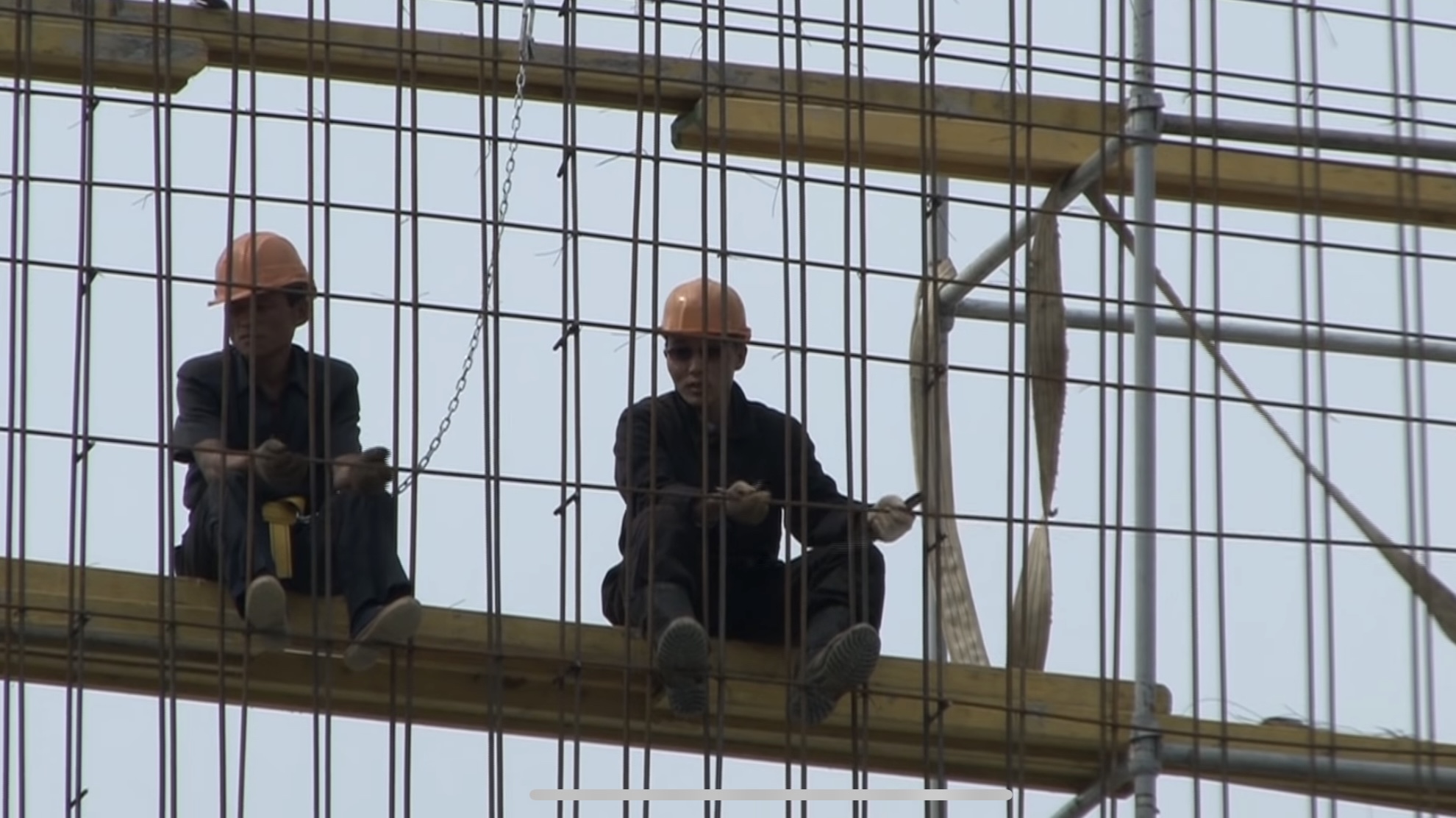
Yet another disturbing revelation to come out of the DPRK is the fact that the government drugs its own citizens. For workers who are labouring on important state projects, they are often given meth-based drugs which, when inhaled, increase energy levels and suppress appetite. This allows the workers to work longer hours with little or no food or rest. Project managers will adopt this strategy in response to immense pressure to complete important state projects under record time as a means of propaganda.
Sounds legitimate. Construction workers have been busy in recent years with the arrival of Kim, who is known as the ‘builder-president’. He has ordered the construction of one new monument for every year of his reign so far, and naturally he has personally inaugurated every single one. Not all of his projects have been a success though – the Ryugyong Hotel is a giant 3,000-room hotel in the middle of Pyongyang which was never finished and remains empty to this day.
The only state religion is the government of North Korea
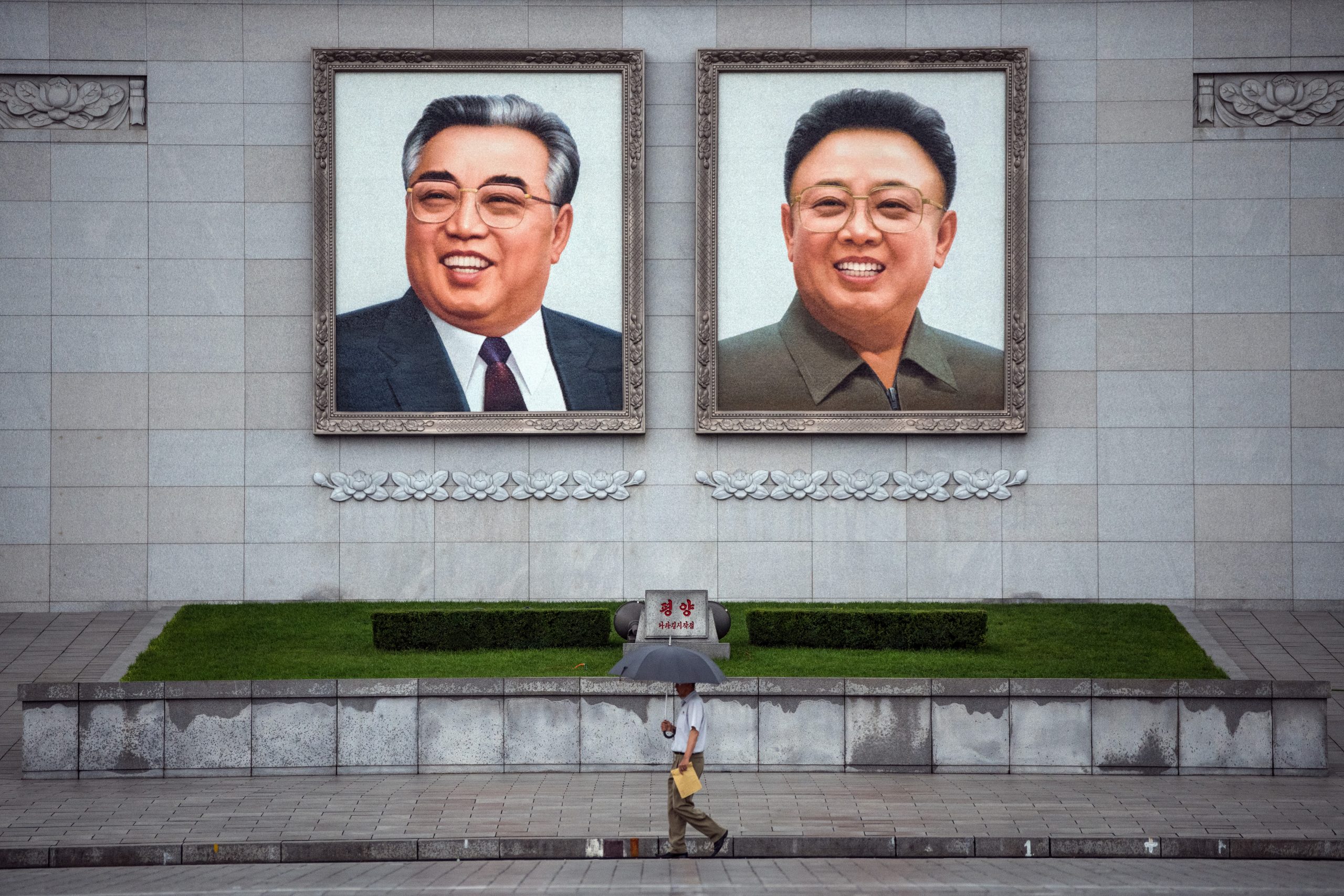
There is no official state religion in North Korea and most people are atheists. The cult of the Kims uses the Juche philosophy to run the country. It is governed based on the rules of its dead leaders. The country’s calendar actually revolves around their leader’s birth date. Some North Koreans do practice their own religions behind closed doors (primarily Buddhism) but if you’re caught then you’ll probably end up paying the harshest penalty. However, shamanism is very popular in the state and most North Koreans hold a very strong belief in ghosts and spirits.
Fortune-telling is another pastime that is enjoyed by the population of North Korea – life can be so depressing in the state that people want to know what their future holds and often believe strongly in what the fortune-teller reveals to them. In fact, fortune-telling is so ingrained in North Korean culture that it’s one of the few activities that the government has failed to discourage people from indulging in.
Tourists have complained that the hotels are worse than prisons
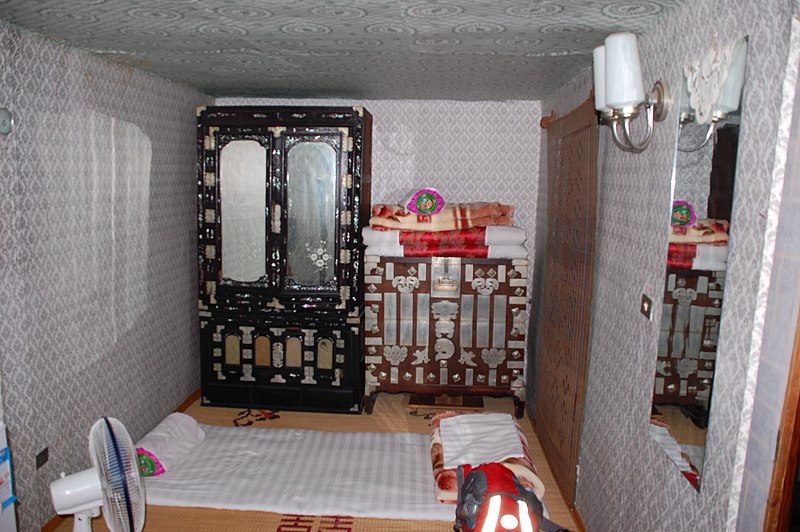
Any tourists who have risked visiting the secretive state have likened the hotel experience to a jail term. Reviews on rating sites show comments that the hotel floors are more comfortable than the beds, while the plumbing work gives you flooding that even the rains would envy. Don’t expect to find any fizzy drinks in the mini bar either. Coca-cola and blue jeans are banned in North Korea. They are considered to be symbols of American capitalism. North Koreans would only ever see these items on contraband movies which they already risk their lives to watch.
In the hotels themselves, staff are very friendly but the food is disgusting and many Tripadvisor reviews have complained about how hard the beds are and about the poor quality breakfast on offer.
Making international calls is a capital crime
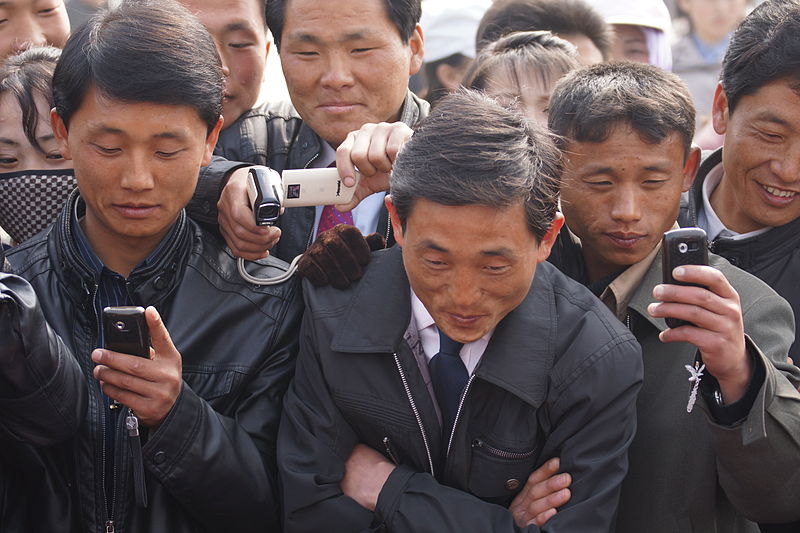
One of the most powerful weapons that dictators’ have at their disposal is propaganda. Authoritarian regimes understand that ruling through brute alone eventually leads to uprisings, so they maintain control over their subjects by convincing them that the alternatives are even worse. Propaganda is heavily used to indoctrinate citizens into believing that while things might be bad for them, they are even worse for the rest of the world. This is why dictators censor outside information so aggressively, because they know it could undermine their lies.
North Korea is no exception, banning foreign films, music and books. Making international calls is also strictly illegal, and will get you the death penalty. In 2007, a factory boss was reportedly caught making international calls using 13 phones which he was keeping hidden in a factory basement. His sentence, execution by firing squad, was carried out in a sports stadium in front of 150,000 people.
Students have to pay for their own desks and chairs
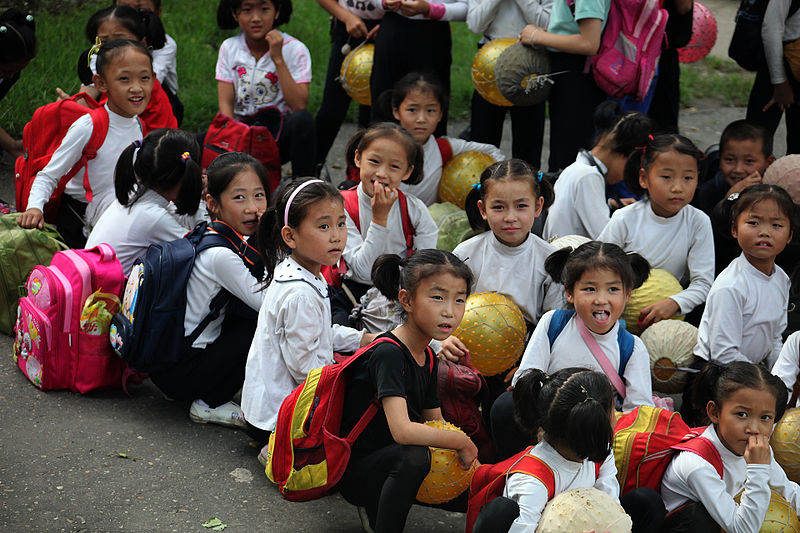
The wealth gap in North Korea is almost incomprehensible: whilst his citizens scrabble in the mud for insects to eat, Kim Jong-Un lounges in his palatial Ryongsong Residence, dining on delicacies and enjoying Western luxuries. Despite notionally being a communist state, the government clearly has zero intentions of redistributing wealth, and is more than content to horde its riches.
The regime also forces citizens to pay for things that are freely provided in most other countries. It was previously mentioned that soldiers in North Korea’s soldiers have to buy their own uniforms and food, but it also turns that students need to buy their own desks and chairs. This is on top of school fees. The cost of education precludes the children of poor families from getting a good education (there is free universal education, but it is basically just an indoctrination program), perpetuating the brutal cycle of poverty which is the defining feature of North Korean society.
Leaving the country is illegal
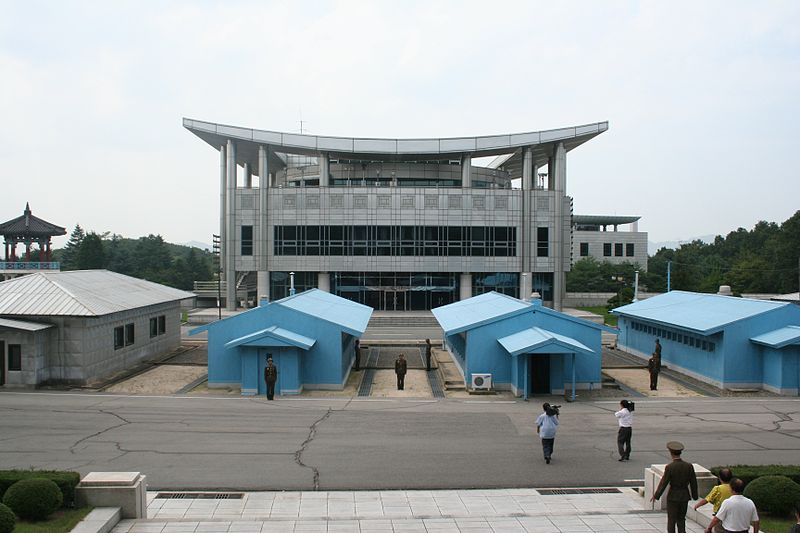
North Korea shares borders with South Korea and China, but crossing those borders is fraught with peril and likely to result in an unpleasant death. Leaving North Korea is strictly prohibited by the government, which issues travel documents on a case-by-case basis and only for an extremely small number of reasons. Border guards are under strict orders to shoot anyone caught trying to sneak out if they flee, but there isn’t much incentive to surrender: the punishment for attempting to leave the country is death, and North Korean courts aren’t known for leniency.
Despite these grim realities, people still try and escape on a regular basis. Since 1998, more than 33,000 North Koreans have defected to South Korea alone, with many more heading for China or Russia. However, the number of defectors in recent years has dropped, which suggests that the military is getting more effective at catching people as they try to escape.
Committing suicide is illegal
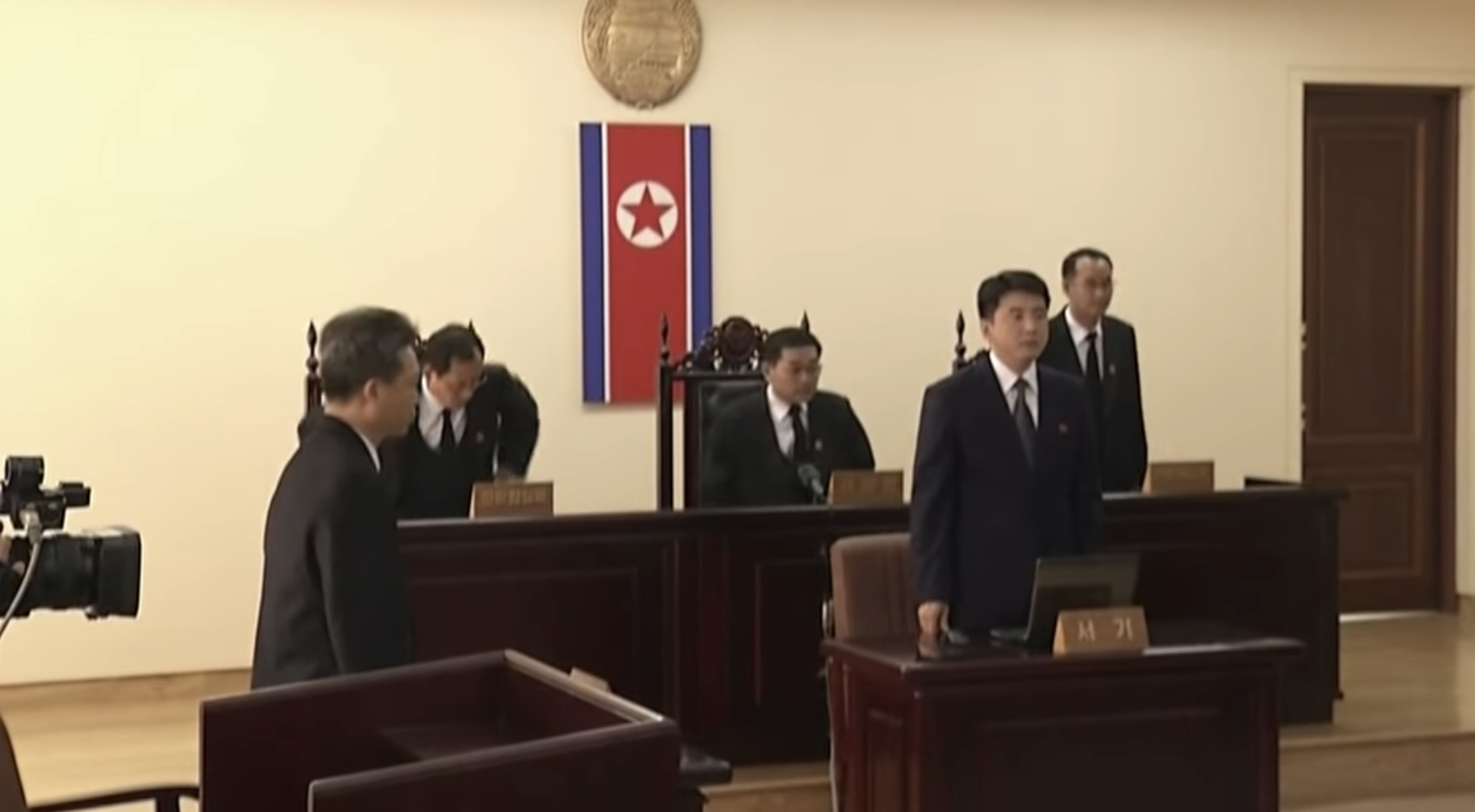
Taking one’s own life is actually illegal in a surprising number of countries, and was only decriminalised in the UK in 1961. However, the nature of suicide makes it somewhat challenging to prosecute perpetrators, at least if it is carried out successfully.
Not to be dissuaded, North Korea has found a workaround to the minor inconvenience of not being able to punish dead people, and naturally it involves penalising their families. The same “three generations” law that allows the government to punish members of a criminal’s family also allows them to prosecute the families of suicide victims. Despite this, North Korea has one of the highest suicide rates in the world, which, given the rampant poverty, oppressive regime, and ghastly living conditions, isn’t all that surprising.
You need permission from the government to use electricity
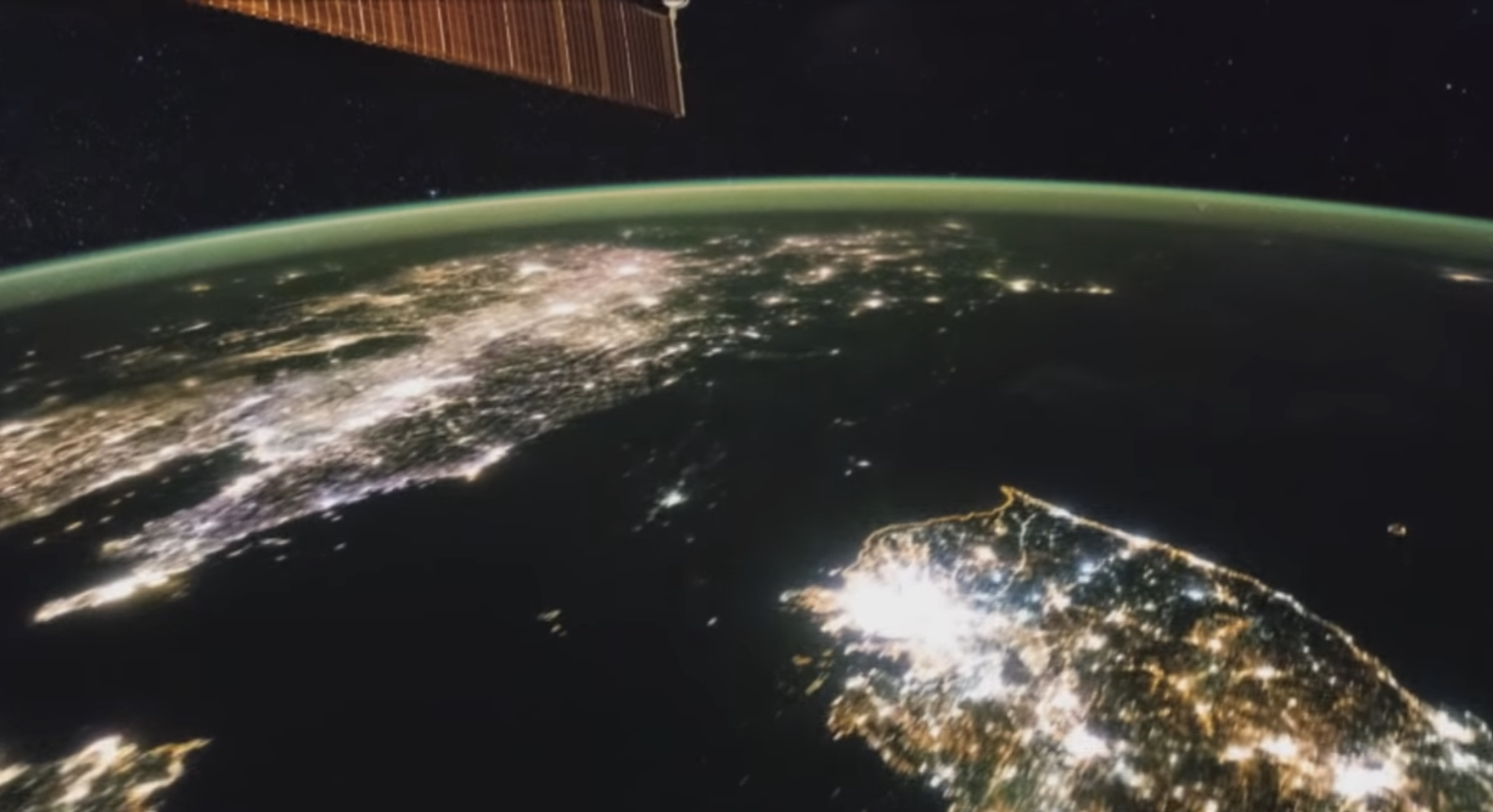
Describing North Korea’s economy as “terrible” runs the risk of being generous. The hermit kingdom does have some natural resources, such as iron and minerals, but it severely lacks production capabilities and the country’s fifth most valuable export is literally blood. Due to not being able to afford much electricity, mandatory power-cuts are enforced every night, the results of which are eerily visible from space.
Using electricity requires government permission, and probably a bribe (on Transparency International’s 2021 Corruption Perceptions Index, North Korea ranks 174 out of 180), and owning a microwave is a strictly prohibited luxury. Rice cookers are also illegal, although apparently people do still use them in secret. Unsurprisingly, Kim Jong-Un’s palaces are exempt from the power cuts.
Kim Jong-Il kidnapped a foreign director to make films for him

Kim Jong-Il, North Korea’s previous dictator, was an avid film fan. Some of his favourite titles included Rambo, Friday The 13th, and Doctor Zhivago. However, he had a particular affinity for Godzilla. Kim Jong-Il was such a fan of the films, which feature a gigantic rampaging metaphor for Japan’s still fresh nuclear trauma, that he orchestrated the kidnapping of South Korean director Shin Sang-ok in order to make his own version of the franchise.
The director was held captive for a period of eight years, during which he was forced to direct seven films, including Pulgusari, a Godzilla knock-off set in feudal North Korea. Although he was initially held in comfortable accommodation with his wife, after numerous escape attempts the couple’s residency was downgraded to a prison. However, they eventually managed to successfully flee the border and sought asylum in the United States, where Sang-ok continued his film career.
Falling asleep in a meeting has dire consequences
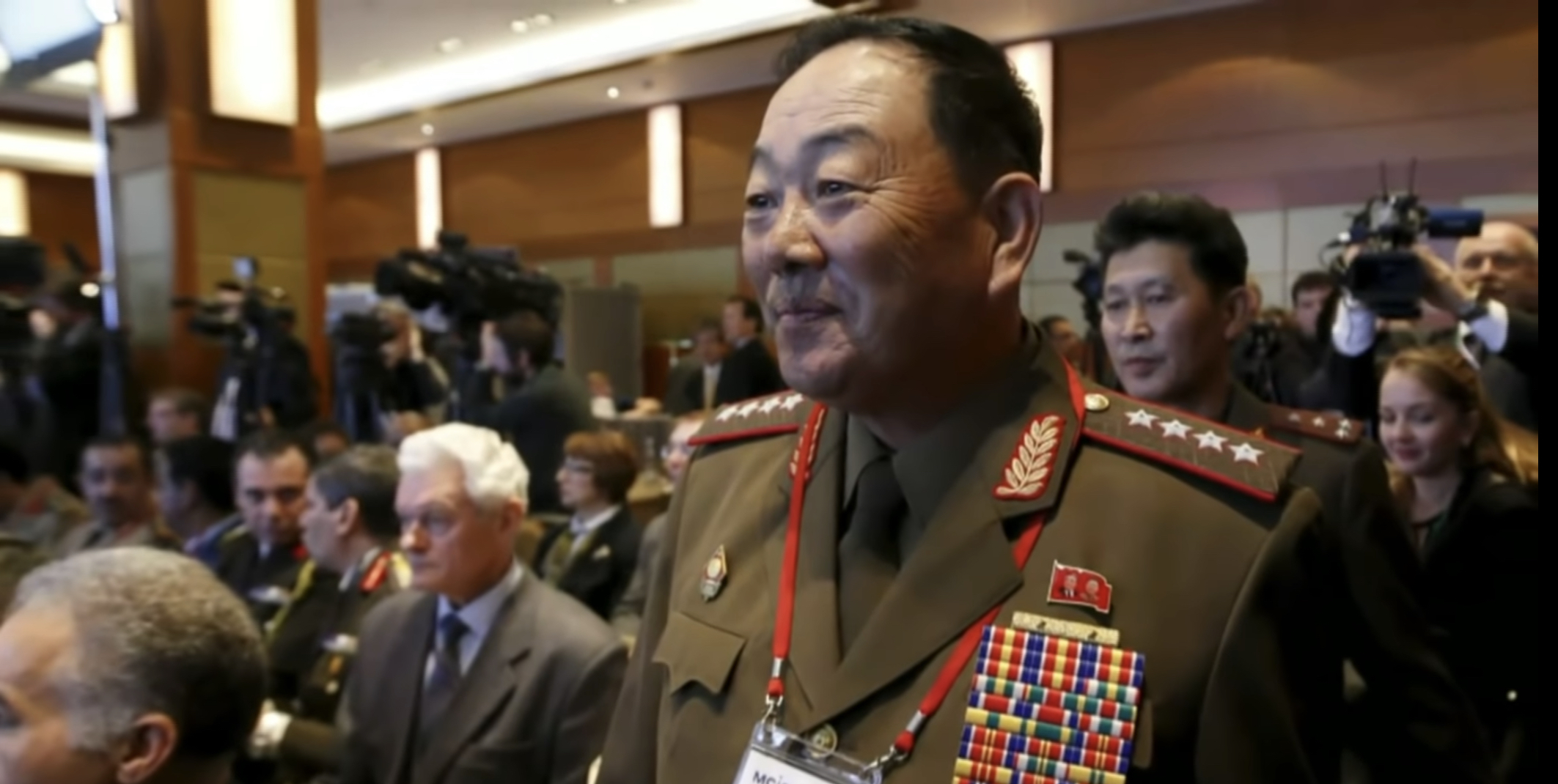
No one wants to feel like they are boring someone, and it is seen as the height of bad manners to act tired when being spoken to. It seems that nobody takes such etiquette as seriously as Kim Jong-Un, who will impose the death penalty for not showing appropriate levels of engagement in meetings with him. This isn’t an abstract law either, with at least one reported example of its application.
During a military meeting in April 2015, Kim Jong-Un’s defence minister at the time couldn’t keep his eyes open and nodded off. Unfortunately for him, this was caught on video, and when Kim later saw it he was apoplectic, considering it a display of insubordination. The minister was promptly executed with an anti-aircraft gun, and the rest of Kim’s lackeys no doubt began making a point to always down a strong coffee before meetings.
Women aren’t allowed to drive
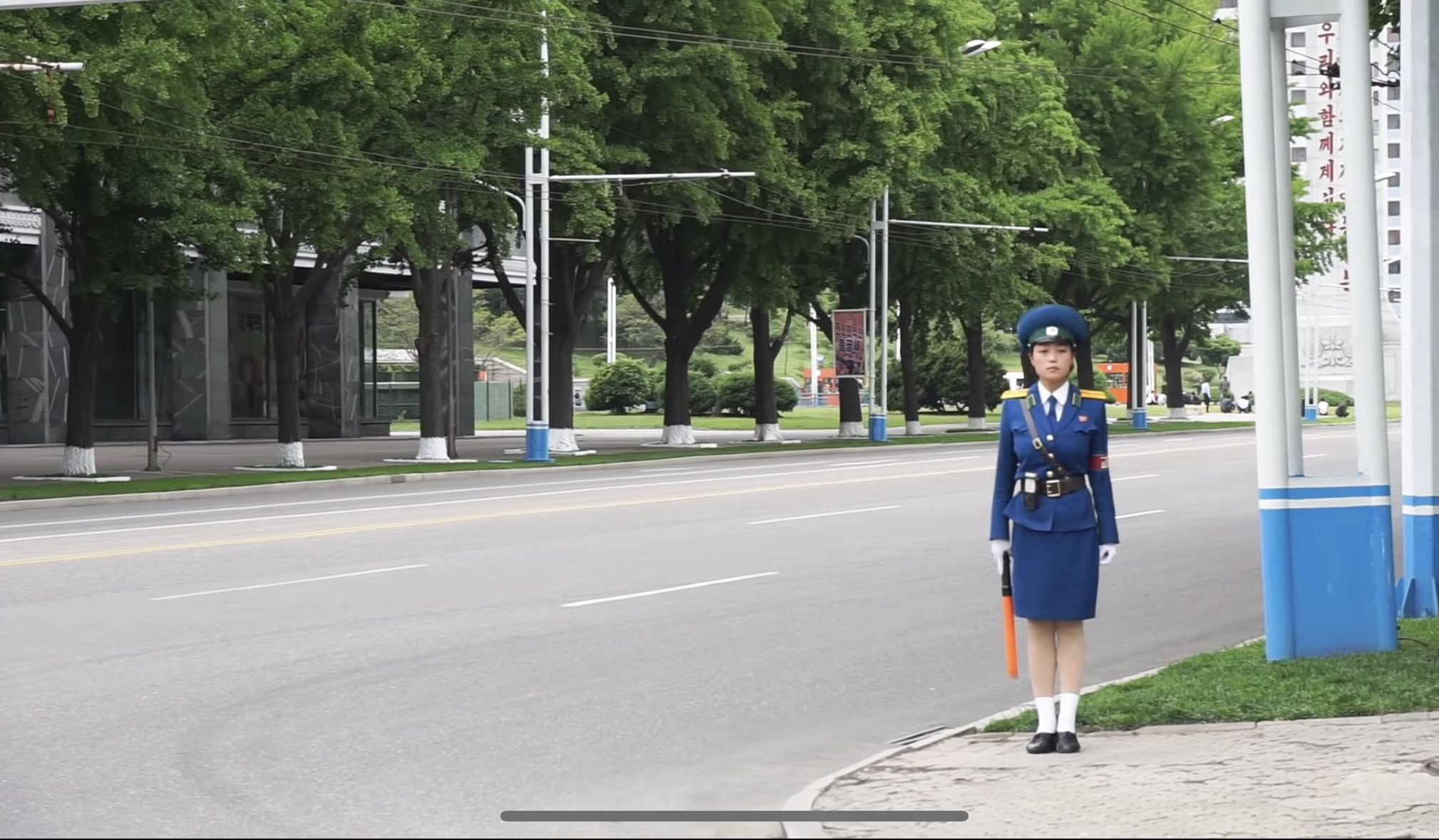
As in some strict Islamic societies, women are banned from driving in North Korea. Cars are so rare that this is hardly likely to affect the average citizen, but even female government officials are forbidden from getting behind the wheel, although they can be employed as traffic wardens. Women are also not allowed to ride bicycles in Pyongyang, apparently out of concern that will panic in the face of traffic and cause accidents. However they permitted to ride them in more rural areas.
Women have a lot less rights in general than men in North Korea, and are primarily expected to be housewives. The government has decreed that women should remain “pure and clean”, like North Korea itself, and behaviours like smoking are strongly disapproved of. Wearing modest clothes is also expected, and women who get married aren’t allowed to keep their own name.
Smiling on July 8 is illegal
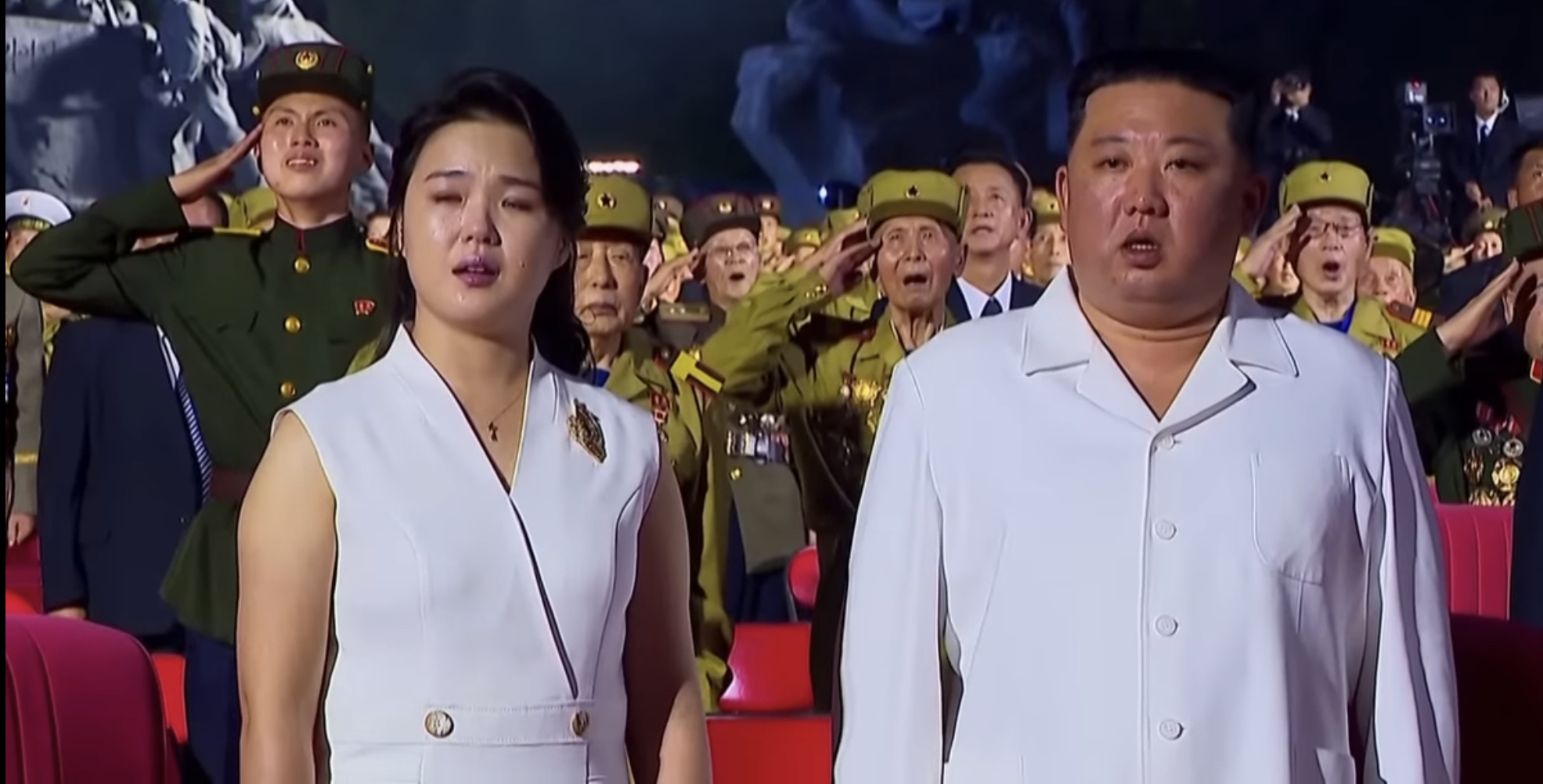
On July 8, 1994, Kim Il-Sung passed away from a sudden heart attack at the age of 84. Following the traditional Confucian mourning period, his death was not announced for 36 hours, after which the country went into a ten-day mourning period. Hundreds of thousands of people attended his funeral, many of them flown in by the authorities, and his body was embalmed and placed on public display in the Kamsusan Palace of the Sun.
Every year, the country marks the anniversary of his death, and it is expected to be a somber affair. Any sort of celebratory activity is strictly prohibited, including singing, dancing, drinking alcohol, or any other activity which the government deems excessively merry. Even publicly smiling can land you in legal hot water, which in North Korea generally involves being unceremoniously disposed of or sent to a labour camp.
There is a fake propaganda village near the border
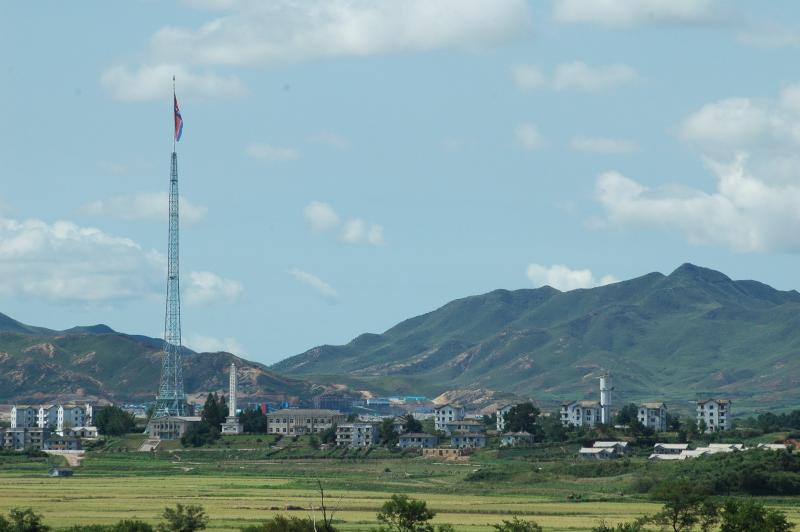
As well as brutally punishing anyone who attempts to leave the country, the North Korean government has also devised some schemes to encourage outsiders in. One of the most eery is known as Propaganda Village. Kijong-dong is a village near the border with South Korea that was constructed in the 1950s – from a distance it seems like an idyllic place to live, full of attractive-looking houses, a range of modern facilities, and an absurdly large flagpole that was specifically designed to be taller than those found in South Korean settlements.
However, looks can be deceiving. A clue to the village’s true purpose can be found in it its location: it has been specifically built in an area that is visible from inside South Korea, with the intention of luring defectors. North Korean insiders and those who have managed to escape have reported that village is in fact entirely uninhabited, with lights that run on timers to give the illusion of people living there.
All foreign media is banned
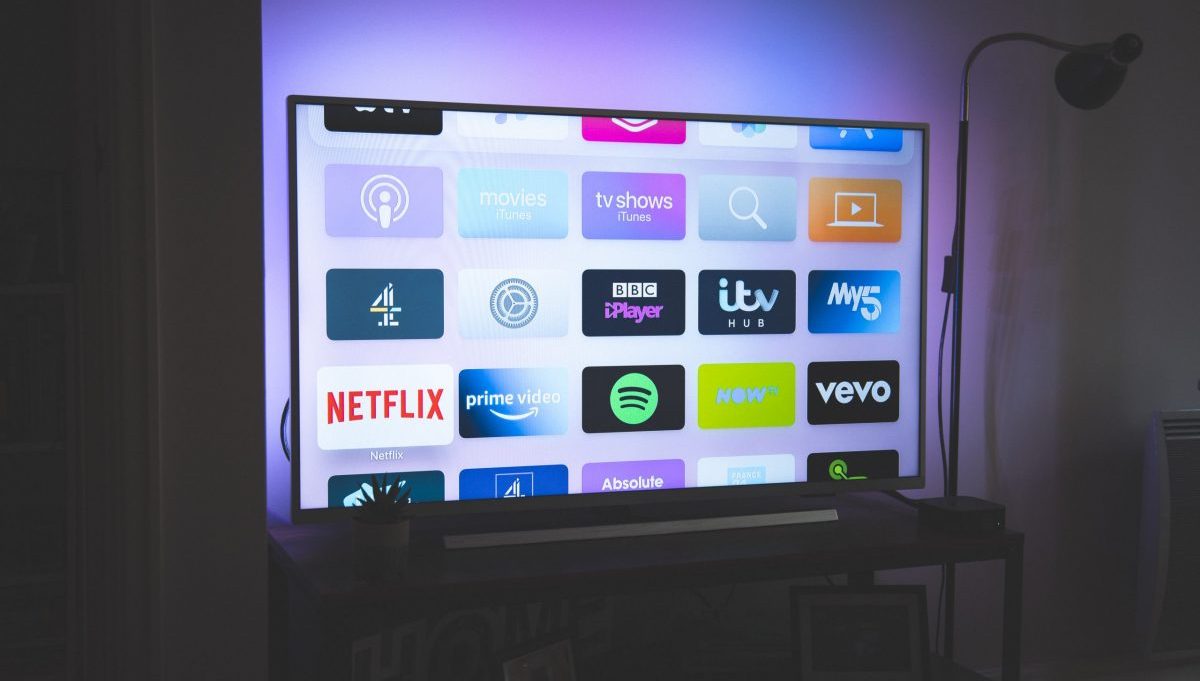
Watching or listening to foreign movies and music may lead to jail time in North Korea. In 2015, Kim Jong-un ordered the destruction of all cassette tapes and CDs that had state-banned songs in order to contain dissent. If you watch an American movie, you may be executed; if you watch Indian films, you may be imprisoned. Distributing pornography can lead to the death penalty. In 2013, North Korea executed 80 people for secretly watching the ABC drama “Desperate Housewives”.
The country has only four television channels, and all of the content is controlled by the government. The main one, Korean Central Television, is the hub of broadcasting state news and has the most advanced equipment. There are two educational channels and one sports channel. All state announcements are made by the government.
North Korea has their own basketball rules
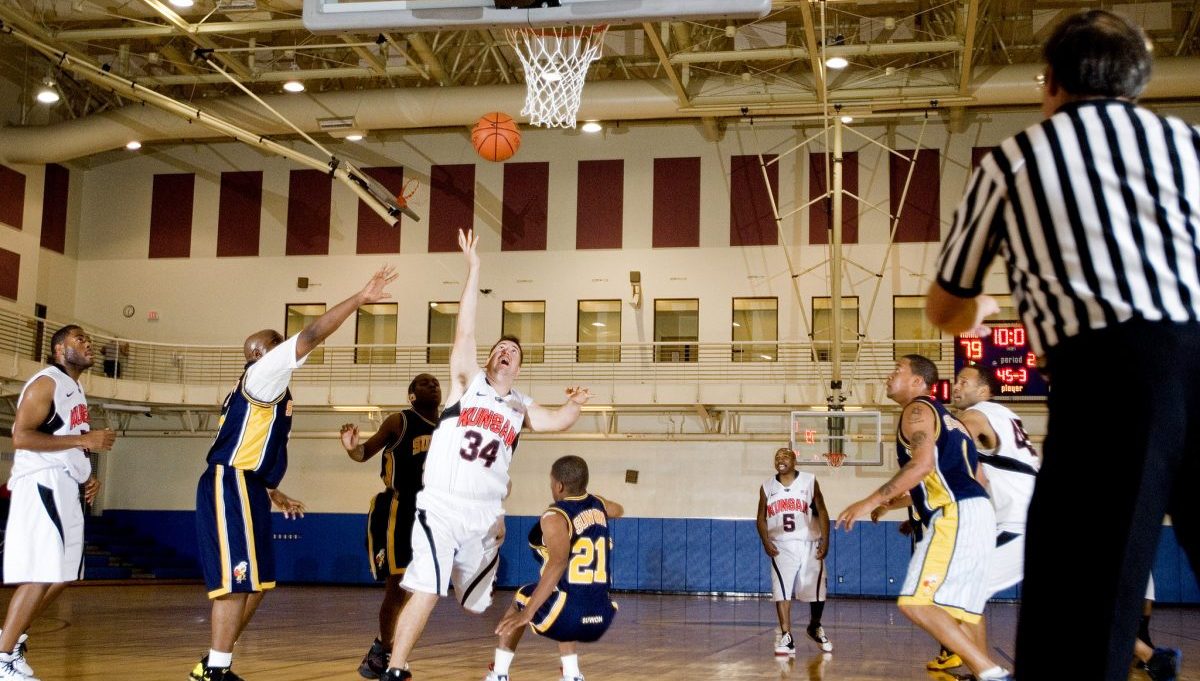
The country’s sports are also isolated from the rest of the world. One example is how basketball is played in North Korea. Kim Jong-un apparently didn’t like how it was played, so he decided to rewrite the rules. For instance, a slam dunk is worth 3 points instead of 2, 2-point shots in the last three minutes of the game are worth 8 points instead of just two, and if you miss 3 shots in a row then another point is taken away from your score.
Citizens need permission to live in Pyongyang
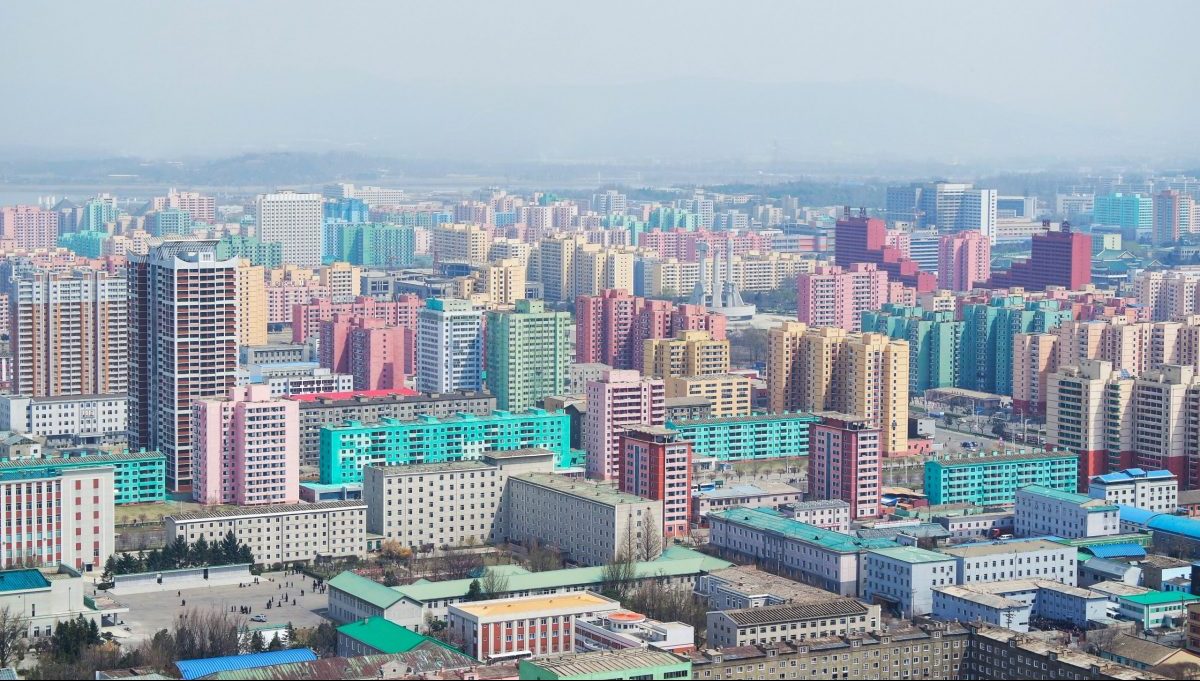
Life in Pyongyang is easier than life in the countryside, but people cannot just pack up their suitcases and move to the capital. If you want to move to Pyongyang, you have to get permission from the government. That’s why only party members or people with high social status live in Pyongyang. There are also roadblocks that prevent people from moving around freely without permission. Kim Jong-un has stated he only wants the most successful, wealthy and influential people to live in Pyongyang.
Christianity is prohibited
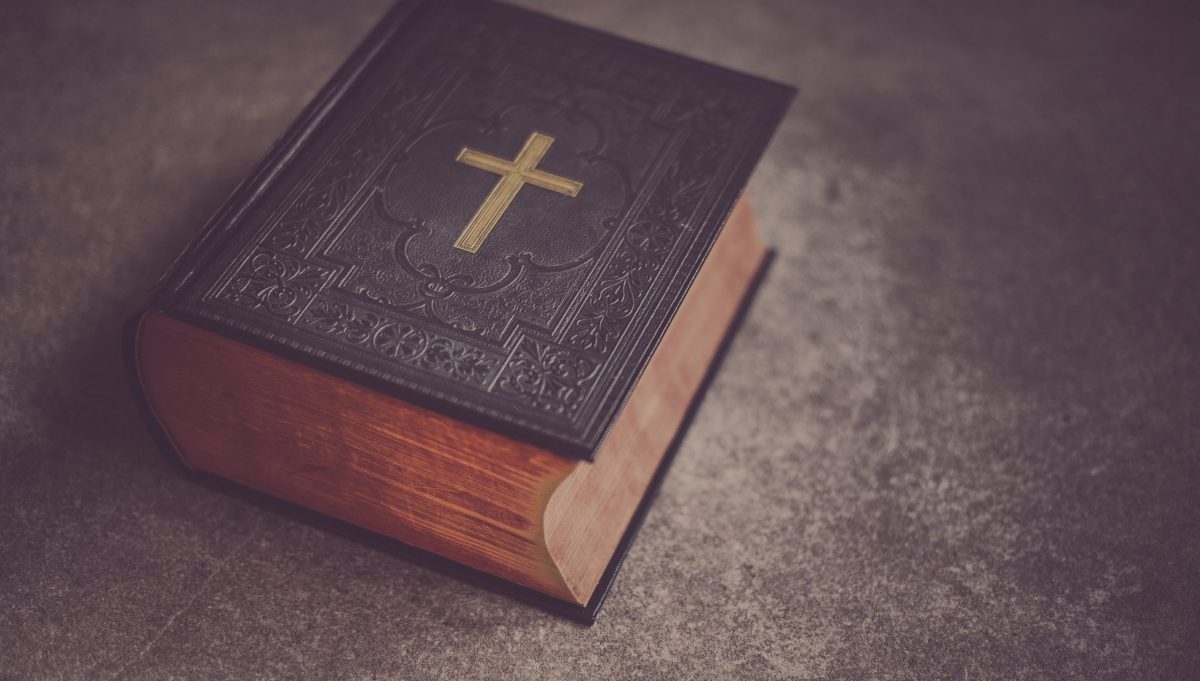
While the North Korean constitution nominally guarantees religious freedom, in practice it is an atheist state and Western religious practices are forbidden. Because it can transform people, leading them to believe they are ‘born again,’ the Bible is considered a symbol of Western culture and therefore prohibited. In 2014, Jeffrey Fowle, an American citizen on tour of North Korea, mistakenly left a Bible in the bathroom of a restaurant at the Chongjin Sailor’s Club. Despite his apologies and efforts to leave North Korea quickly with his family, he was arrested and imprisoned for five months.
Marijuana is not illegal
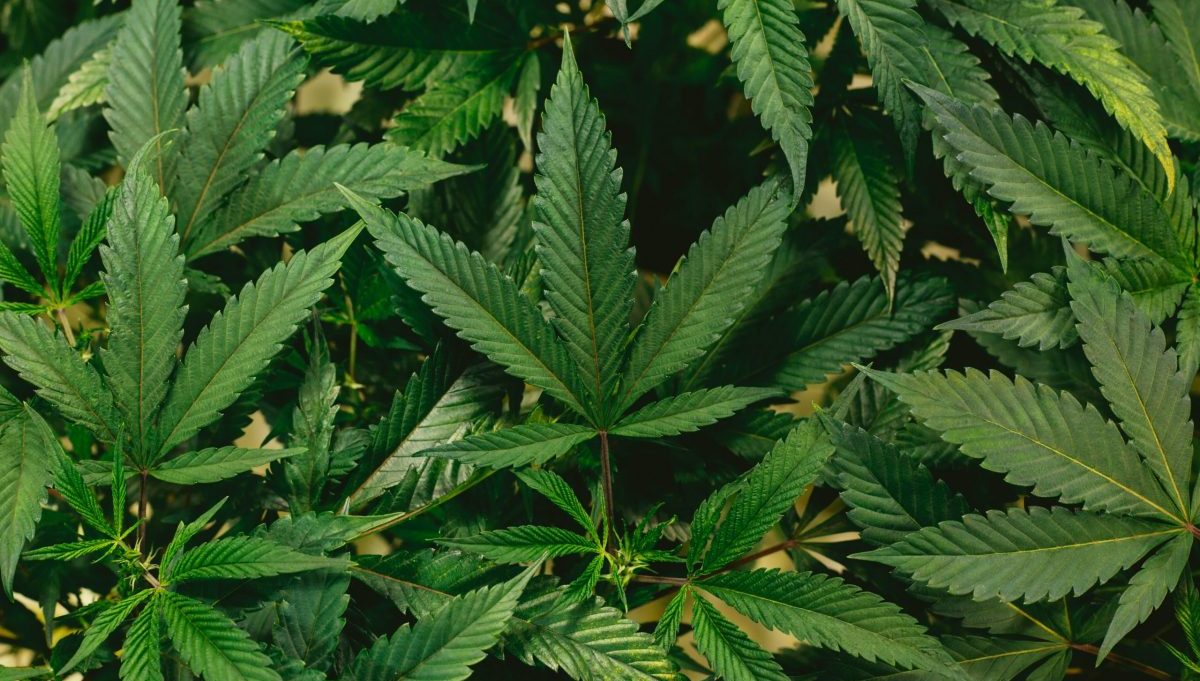
North Korea is often thought of as a conservative country, with harsh laws against many offenses. Although heroin is illegal there, some experts claim that marijuana is not. Reports have even gone so far as to say that it can be freely smoked and even sold without prosecution. In 2013, Vice News reported that cannabis was widely smoked as “ip dambae”: a cheap alternative to tobacco.
Military service is compulsory for everyone
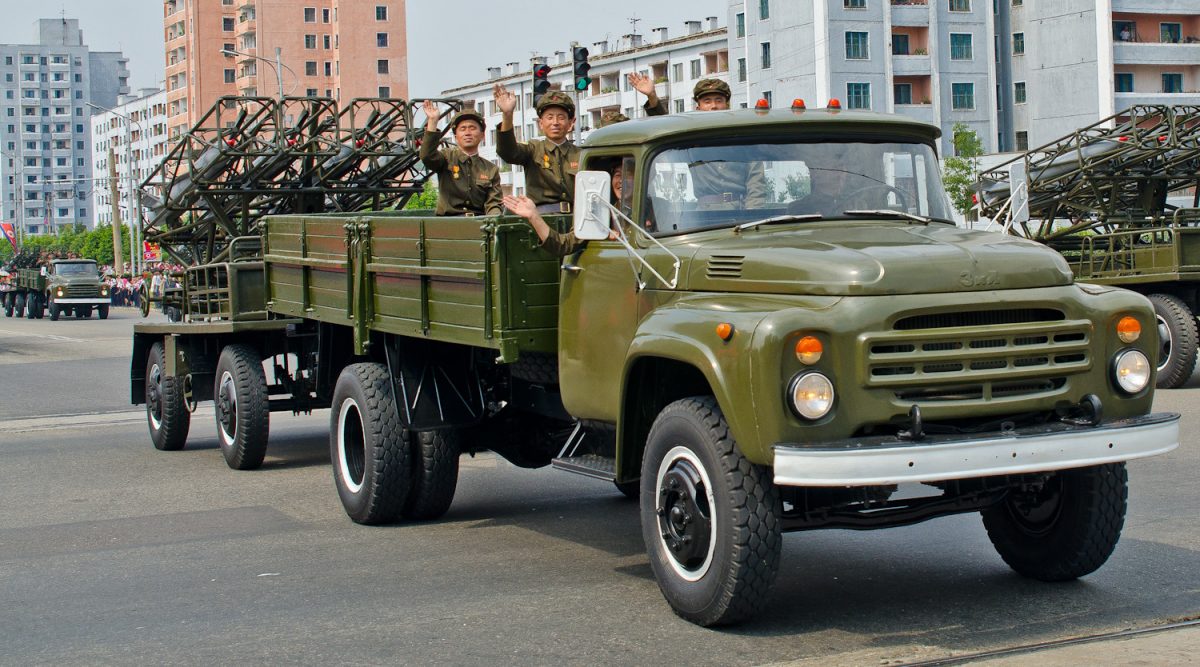
Joining the military in North Korea has always been compulsory for all male citizens, However, in 2015, the government opted to also make military service mandatory for young women in a bid to strengthen the nation’s armed forces. Until 2015, women were able to enlist for military service voluntarily in April and August, while men’s enlistment was mandatory. School graduates (17-18 years-old) enlist in April, while the enlistment period for workers under 20 takes place in August. However, women are not required to serve for the same length of time as men. Unlike men, who must serve for 10 years, mandatory service for women is limited to the age of 23.
Blue jeans are banned
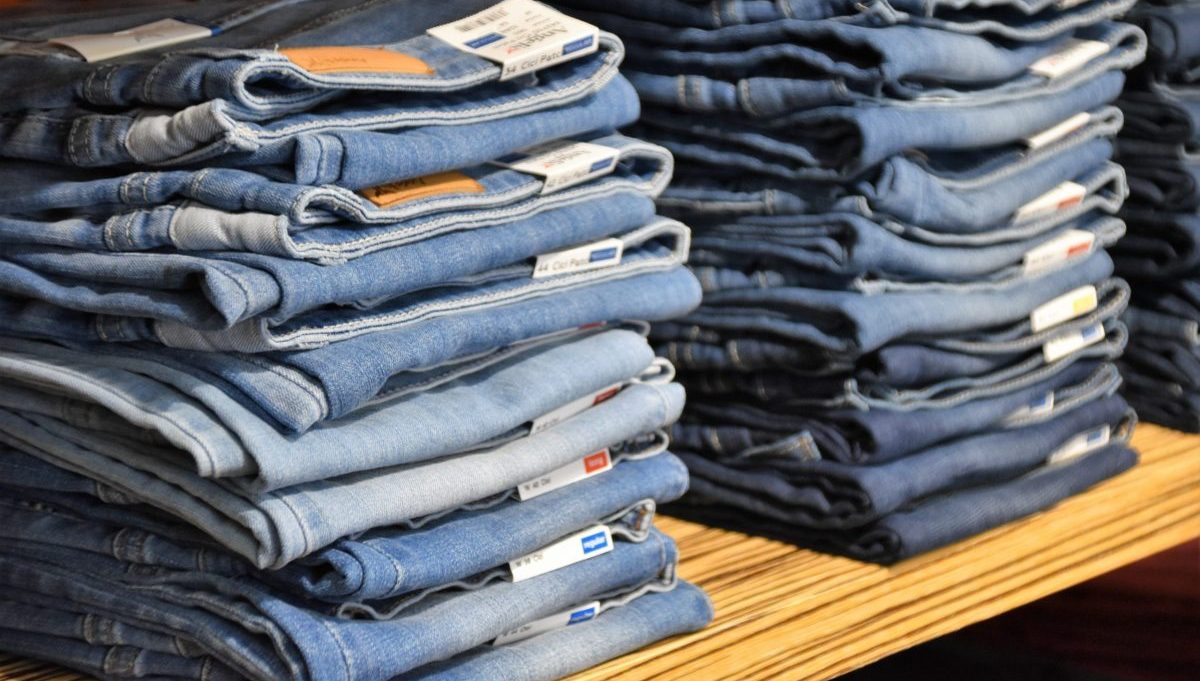
If you can afford them, you can wear jeans. However, the denim should be black because blue jeans are prohibited in North Korea. If you’re a tourist, nobody will confront you about wearing jeans, but you’ll have to change when you visit the Kim Il Sung and Kim Jong Il memorials. North Koreans are not allowed to wear blue jeans, as it is viewed as a symbol of capitalism. If a North Korean resident is seen in blue jeans, he or she will be arrested and punished.
Internet access is restricted
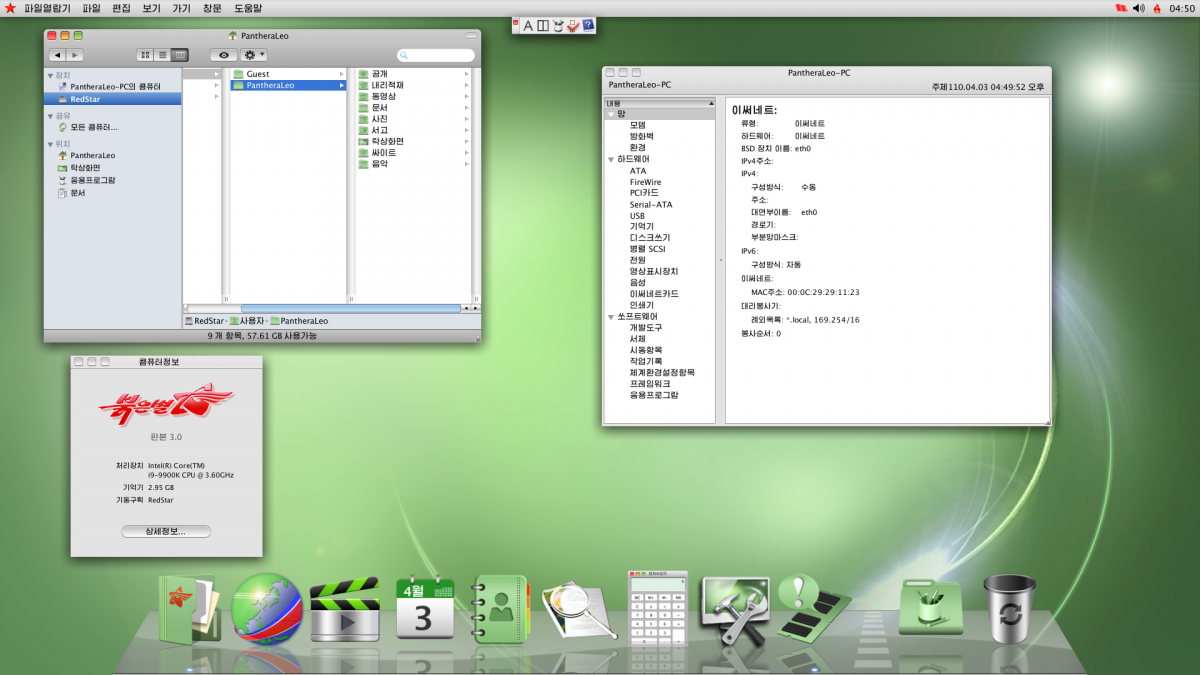
North Korea’s citizens cannot access the internet through their regular means, but are able to use Kwangmyong or Bright, their government-run intranet. Only 28 sites can be accessed, but these are only for profession use and are under government supervision. The list of people with Internet access includes political leaders, students attending elite schools, and military members. Only the state-sanctioned operating system Red Star OS is allowed to be used and not the standard Windows or Mac. All international websites are banned, and if you are not a high-ranking government official, you will never be allowed to visit them. As for Wi-Fi, it simply does not exist in North Korea. Mobile devices do not even have access to “Kwangmyong”. Chinese tablets produced for North Korea do not have Wi-Fi or Bluetooth modules. They are just not needed.
The government chooses your profession
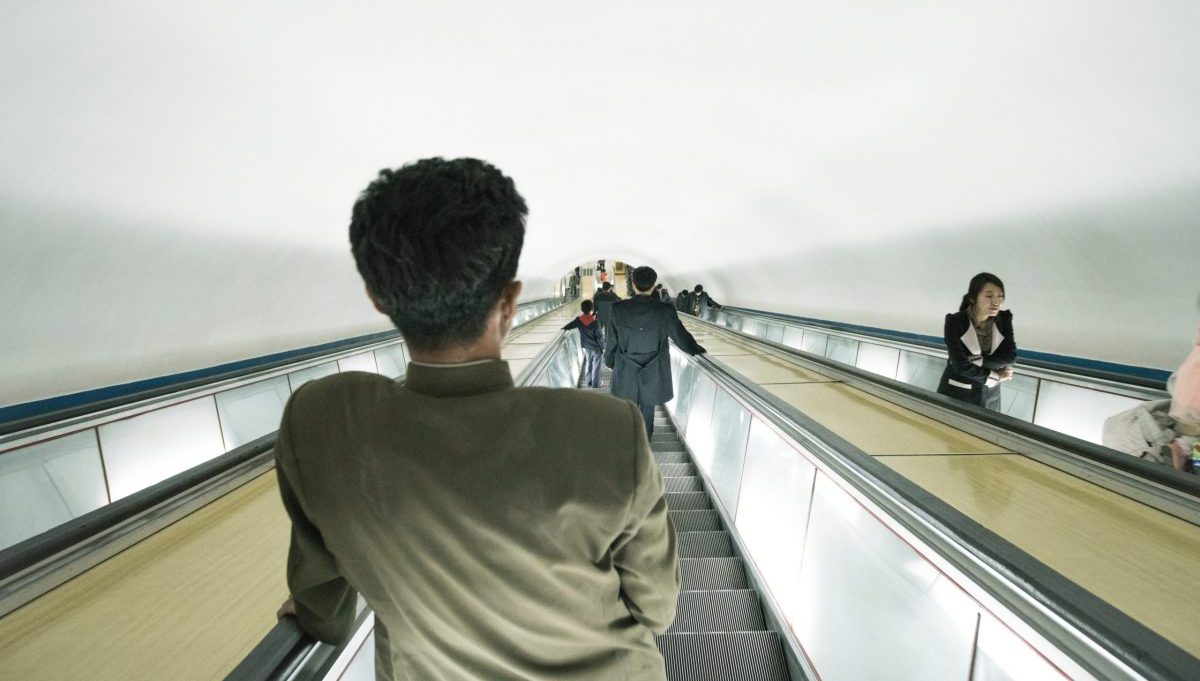
The government assigns all citizens their occupations in North Korea, since it is a very poor country and resources are scarce. The government decides how many people are needed in each industry, based on research into what skills and professions will be most beneficial to the country. Once you’re assigned a job from the government, it is your lifelong job and it’s almost impossible to be transferred to other regions of the country. Bribery is becoming more common in North Korea as people seek more rewarding jobs. Those who do not comply with their assigned occupation are sent to concentration camps for forced labour.
Citizens are not allowed to have the same name as the current president
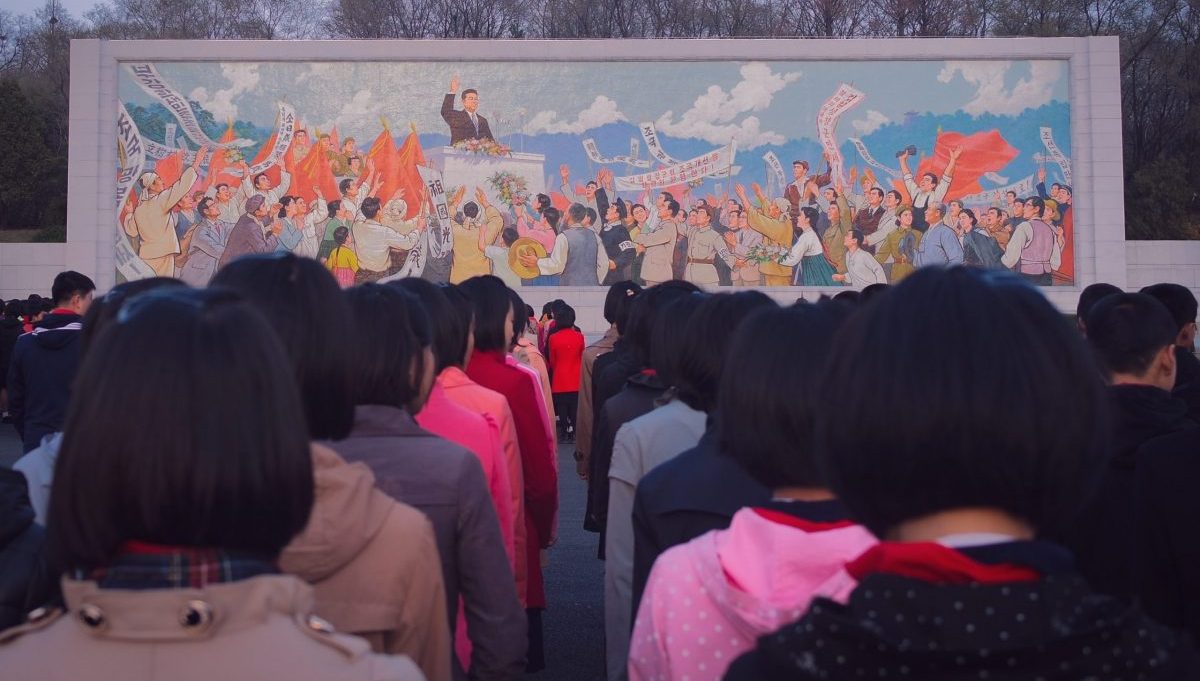
The North Korean government reportedly issued a regulation for anyone sharing the name of the country’s leader, Kim Jong Un, to change it – a tradition that has been upheld by the country’s ruling Kim dynasty. In the state document obtained by South Korea, the following was written: “All party organs and public security authorities should make a list of residents named Kim Jong-un … and train them to voluntarily change their names.” Officials were directed to reject birth certificates for any newborns named Kim Jong-un, and they revised names on official documents, including social security cards and school diplomas. Citizens were also banned from sharing the names of late President Kim Il-sung and his son, Kim Jong-il.
Mothers must give birth alone
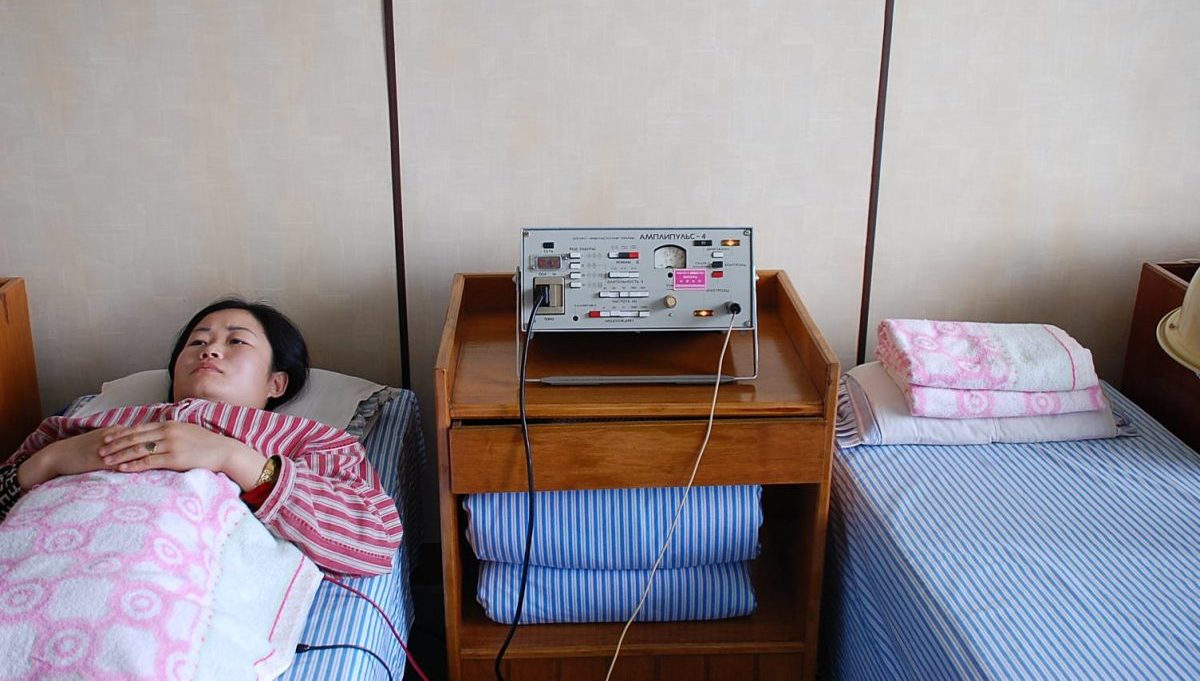
In North Korea, new mothers are required to spend a week after giving birth in isolation. Their families are not allowed to visit them and they may not even be able to see their husbands during this time. North Koreans are reportedly given up to the state at birth if they are triplets, as North Korea has concerns over a population decline. They are returned when they reach the age of four.
Citizens were forced to give up pets
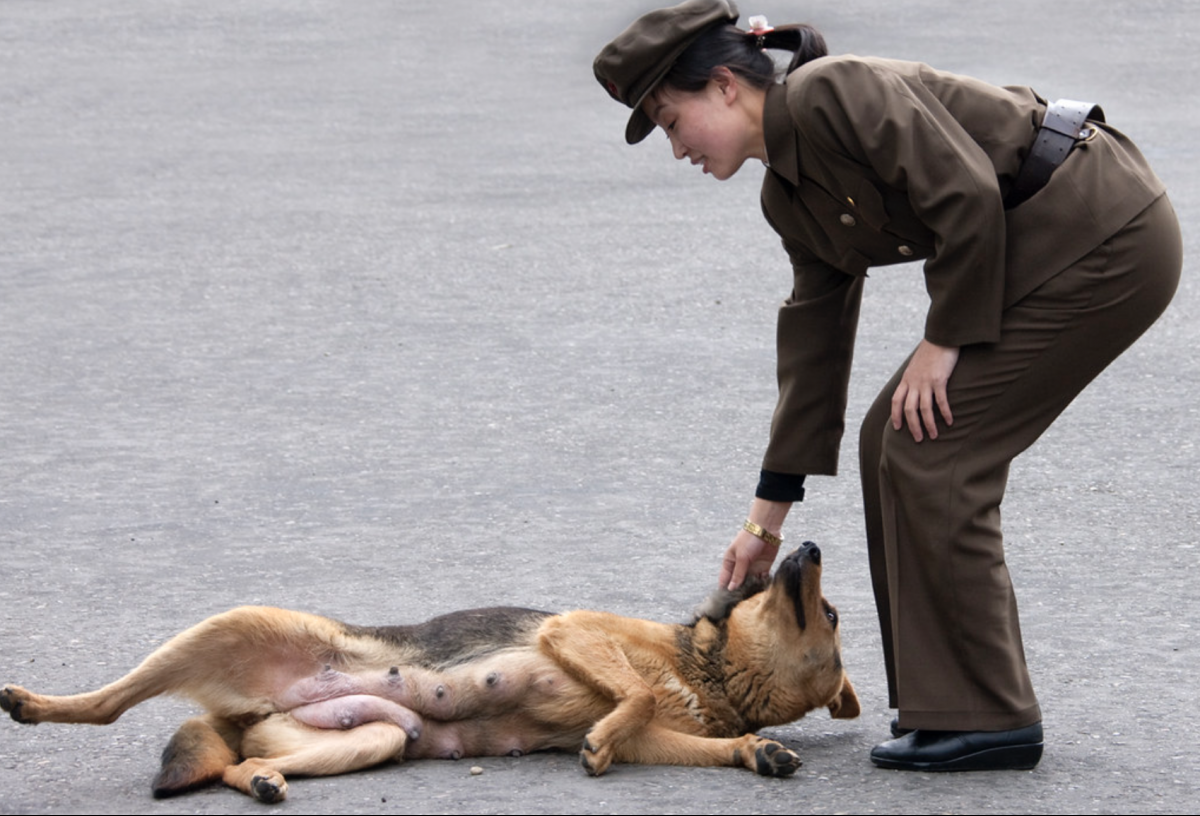
In 2020, North-Korean officials were ordered to give up their pet dogs because they were seen as a symbol of ‘western decadence.’ In the country, dogs are typically kept as pets by wealthy individuals who can afford them. Authorities in North Korea identified households with pet dogs and forced the families them to give them up. If they refused, the dogs were forcefully confiscated them and put down. Some of them are then taken to state-run zoos, or sold to dog meat restaurants. The order came as part of a campaign to solve the country’s food crisis and reduce civil unrest caused by the declining economy and the Covid-19 pandemic.
Tourists cannot use the local currency
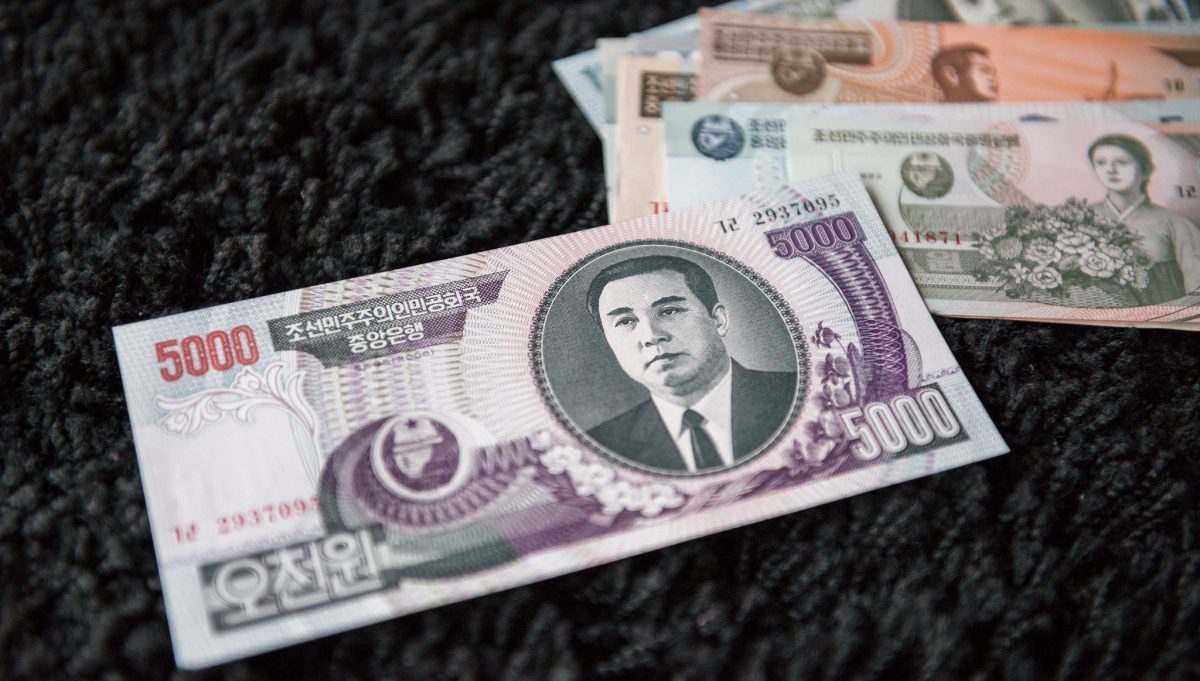
The official currency of North Korea is the North Korean Won, with the currency code KPW. However, tourists are not allowed to use the local currency while visiting. Shops catering to foreigners accept payment in the form of euros, Chinese yuan, South Korean won, and even US dollars. Foreigners are forbidden from entering shops where North Korean locals do their shopping. It is also technically not allowed to take North Korean currency out of the country. If it is found on your person or in your luggage by the DPRK immigration, officers will confiscate the notes.
There are no public newspaper records
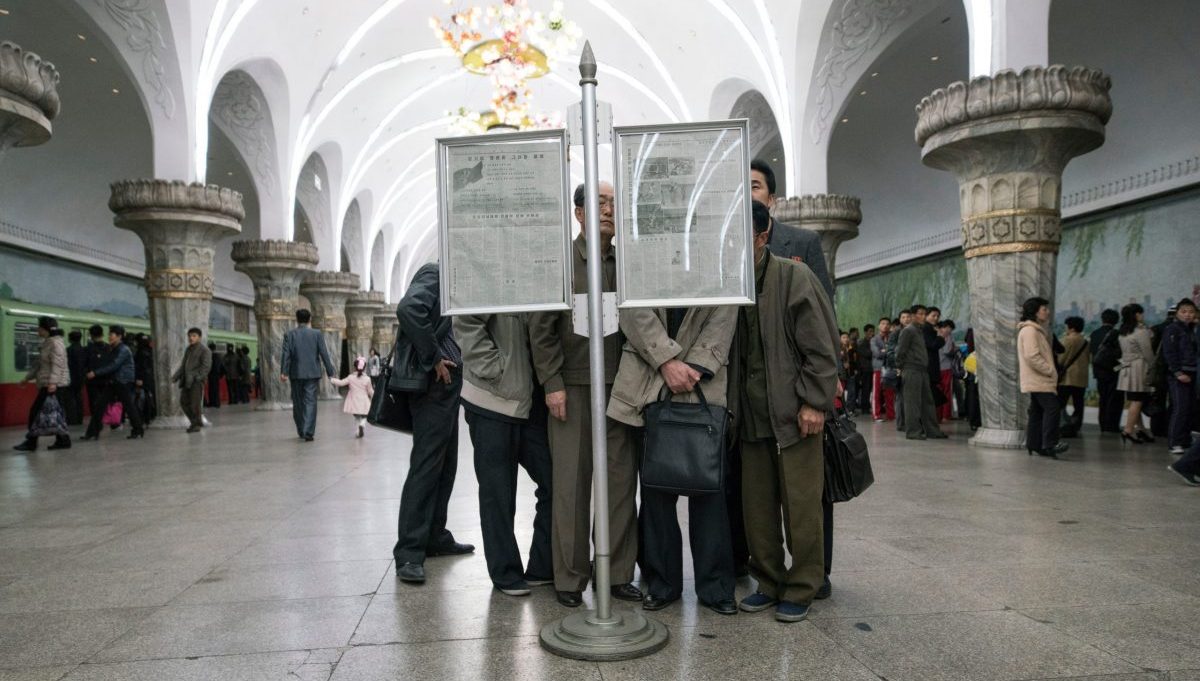
It is difficult to find an old newspaper in a library. The Workers’ Party of Korea changes its policy frequently, and so it is hard for simple Koreans to keep up with these developments. Of course, foreign newspapers and magazines are not available. But you can find daily newspapers in stands on the streets and in subway stations. In 2013, North Korean state media outlet the Korea Central News Agency (KCNA) deleted over 35,000 articles from its on-line archives. Anything published before October 1, 2013 is inaccessible.
Citizens cannot buy real estate
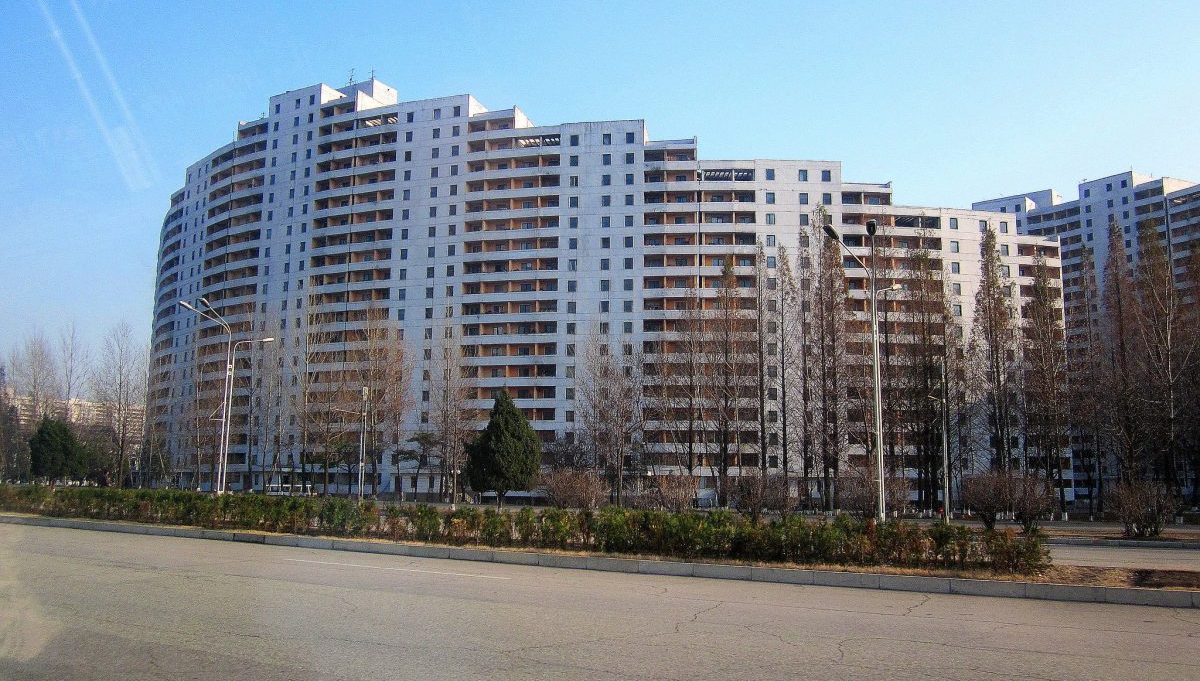
The North Korean government does not allow its people to buy, sell or rent property. The reason for this is that the government is concerned with keeping its people from getting any kind of benefit from these transactions. Even more surprising is that the people of North Korea do not even have valid proof of their personal property. This makes it impossible for them to sell their homes or land legally. However, many North Korean citizens continue to sell and buy houses illegally. If they are caught, they must pay a fine and face punishment. North Korea also does not officially sell apartments. They are distributed by the government. In the black market an apartment can be purchased for 70,000-90,000 USD, but refugees have reported that the official salary of a regular citizen is as little as 4 USD per month.
Luxury products are banned
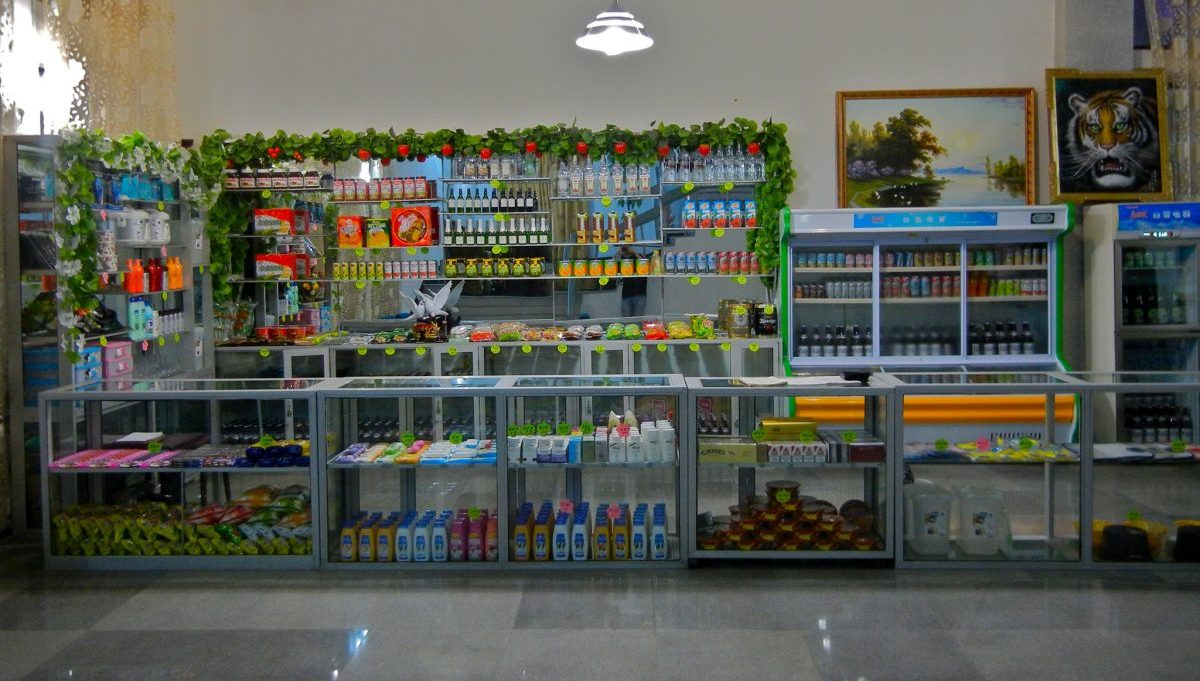
North Korea is the only country in the world that prohibits the import or export of luxury goods. When North Korea became a nuclear power state in 2006, the United Nations imposed many restrictions on it. One of these was also that no branded products such as luxury cars and bikes, branded clothes, luxury jewellery and the like could neither be imported or exported from this country. Since then, the North Korean government has banned these goods. Luxury companies cannot sell their products in North Korea, but those who are very rich can import luxury products from other countries. If people cannot afford to get these goods from outside, they will have to use products manufactured in North Korea.
Citizens are determined by a caste system
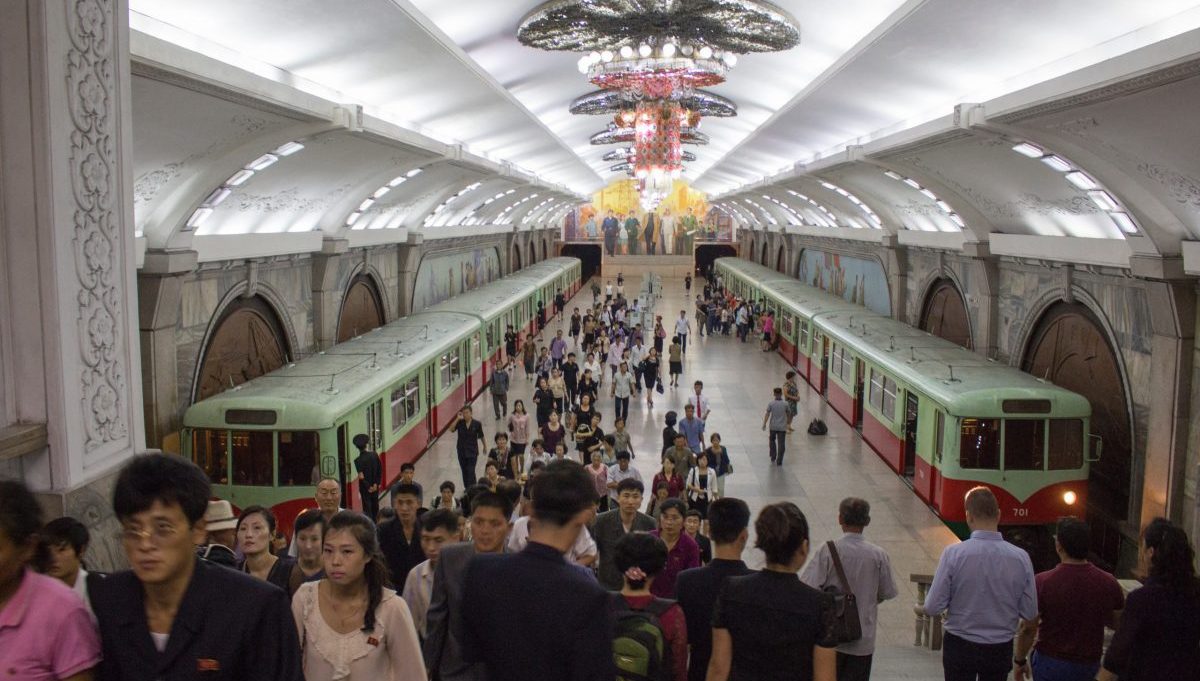
The restrictive caste system continues to be in place in North Korea. Every citizen belongs to one of three main castes: the “core” class, which is considered the country’s elite and includes Kim Jong-un and his closest confidantes; the “wavering” class, comprised of trusted people who have committed no crimes but could potentially be persecuted; and the “hostile” class, which consists of citizens who have committed serious crimes against the state. Lawyers, landlords, and Christian ministers–and those with relatives in these fields–are members of the “hostile” class. Castes were created during the Korean War to differentiate the citizens of North Korea from those in South Korea. They are still used to determine a citizen’s status, how much freedom they are allowed, and how much wealth they can accumulate over their lifetimes.
Women are hand-picked to become traffic police
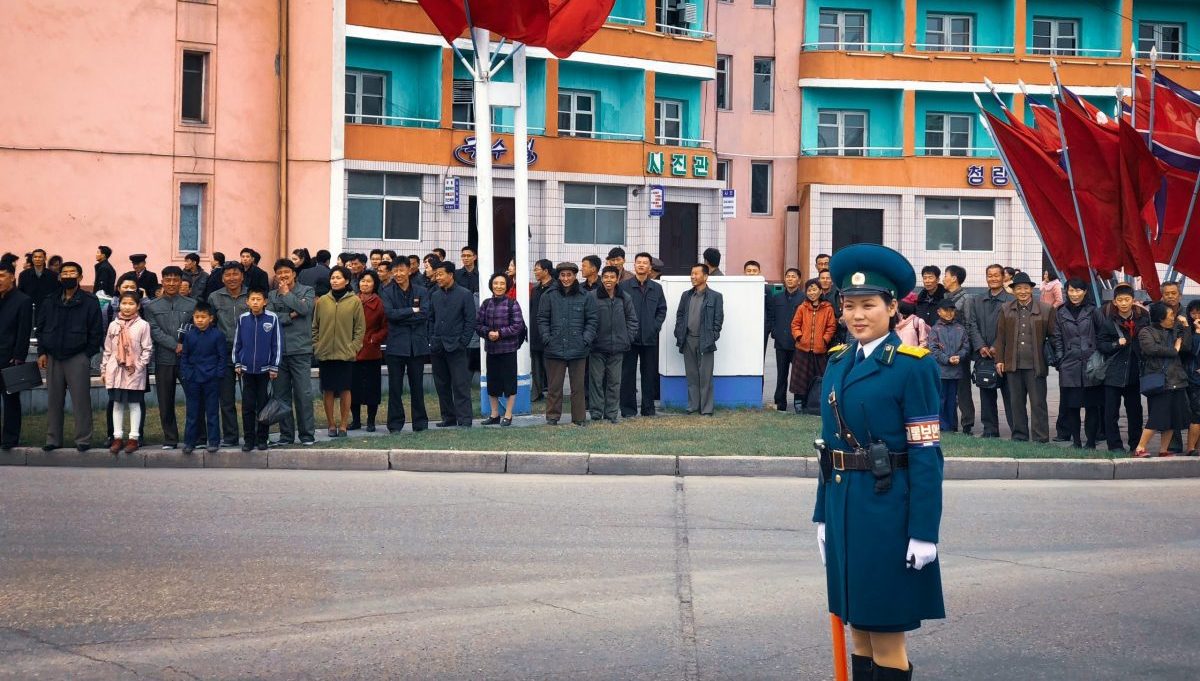
In North Korea, being a traffic cop is one of the most coveted jobs for women. The Pyongyang Traffic Police is known for its attractive, tall female officers. To become a member of this elite force, women need to be young and good-looking. While it is not uncommon to see traffic wardens in other countries, Pyongyang’s traffic girls are perhaps the most iconic symbols of the capital. They have even inspired the creation of a website called Miss Korea Traffic that features a ‘Pyongyang Traffic Girl Of The Month’. Posters and billboards featuring images of these working women are widely used as propaganda in North Korea, and traffic girl dolls are produced as children’s toys.
Tourists must follow strict guidelines
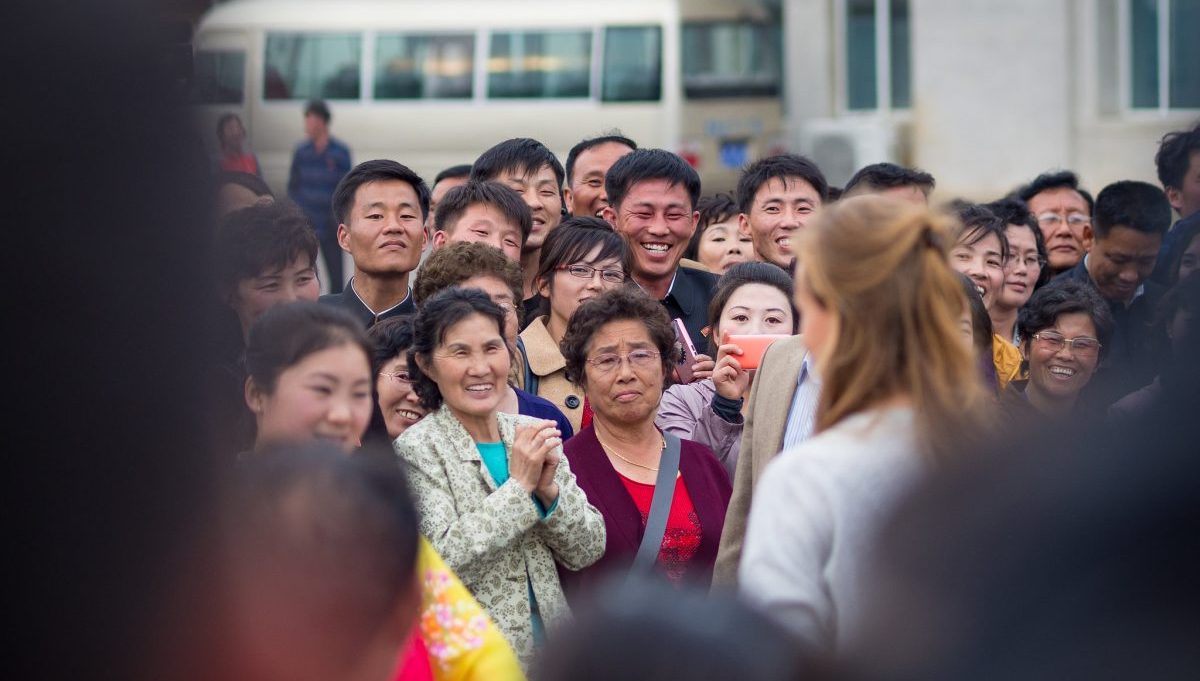
When tourists visit North Korea, they are carefully monitored by government officials throughout the trip, and will be assigned guides who escort them at all times. If they try to talk to locals or attempt to stray from the group, they will be arrested. Along with this, tourists are taken only to certain places and along certain routes. A local citizen will not be jailed or executed for talking to a foreigner. However, they might have a serious talk with special service representatives. Photographing anything outside of the tour is also prohibited. A guide will stop you if you attempt to do so, especially when it comes to military objects and daily life.
Tourists must have all belongings inspected
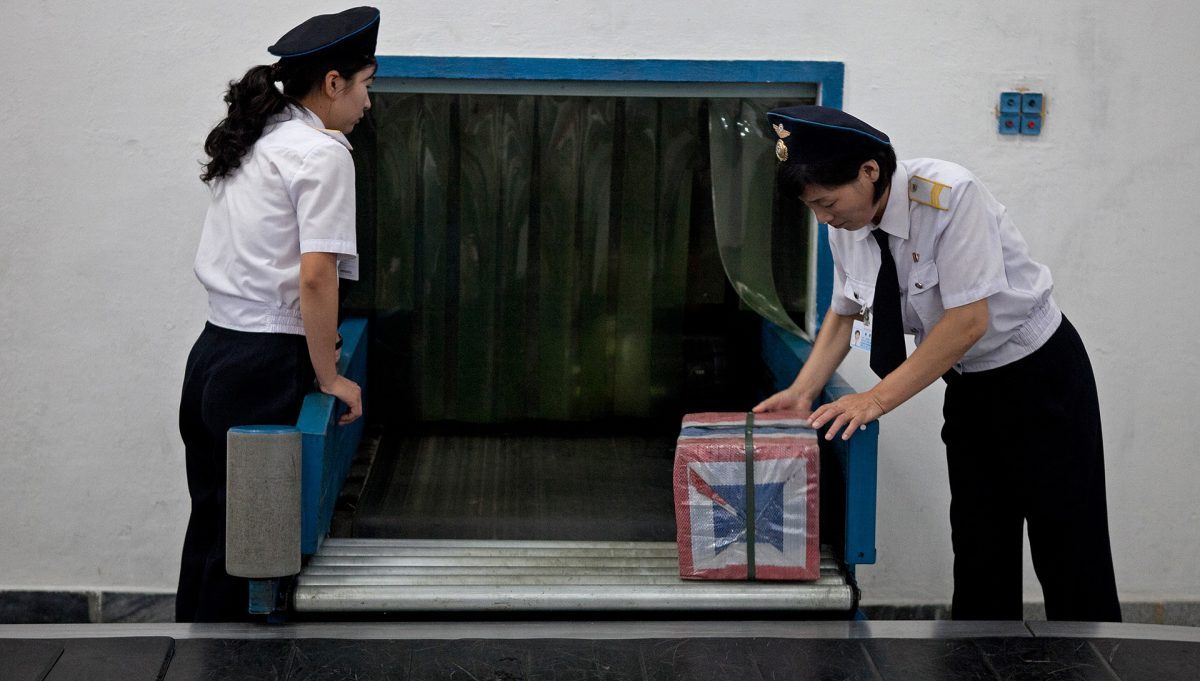
When you arrive, your belongings will be examined by customs officials to ensure that you are not carrying in any content illegal to the DPRK (i.e., pornography or religious material), or contraband such as DVDs, USB drives, laptops, cameras, etc. Officials will even check your browsing history, so make sure to erase anything incriminating. All Western literature about North Korea (including guidebooks) and all media including music and films from South Korea are illegal to bring into the country. Photography equipment larger than 150mm and personal locator beacons are not permitted. If you bring any of these items, they will be confiscated and may or may not be returned to you upon your departure.